#that and characters coming from a different world/universe and having found family aspects (or romantic I'm fine with either)
Text




#half moon#the ancients#ancient tribe#starclan#tribe of endless hunting#stoneteller#teller of the pointed stones#it's she!!!#the lady#one of my favorites#I really like her and jayfeather as either friends or romantically#i don't care how sappy it is the I'll wait for you forever jay's wing line always gets me#time travel stuff always has a way of getting to me#that and characters coming from a different world/universe and having found family aspects (or romantic I'm fine with either)#just *chefs kiss*
21 notes
·
View notes
Note
Happy Dadfucker Friday, Spike!
I’ve been ruminating on this one all day, so hopefully it makes sense:
Looking back on Dream A Little Dream of Me, Dean’s perspective of his father changed the further he got from John’s death. Do you think that Dean ever found himself thinking his dad was a predator, or do you think that was the one part of John he kept close to his heart?
Hi Milo!! What a great question!! Sorry for how long this got
I'd also like to note this is my personal interpretation of J/D; I know other people see it differently and of course there are infinite ways to interpret this show and the relationships therein!
Hmmm, I think this one depends for me. While Dream a Little Dream of Me certainly shows us Dean starting to let John slip off of that pedestal a bit, I don't think it's really till season 8(?) where Dean lets himself really come to terms with the reality of their childhood.
John is such a complicated character. He did the best he could with what he had; sometimes, doing your best is doing uhhh...giving your 10 year old a gun and sticking him in charge of his 7 year old brother in the face of potential monsters. This is relative best not like, the universal best. Ultimately, I do think John loved his kids and he was handed a difficult situation. I also think he, y'know, did the things he did.
So in the face of J/D, I've talked about this before, there is a pre-existing power imbalance there that I do not believe to exist between S/D (while one does sometimes have more figurative power over the other, this flip-flops so constantly it practically stays at equilibrium). Father/son incest aside, I do think Dean was in a position where saying no to John wasn't an option. Not in the violent or even coercive way, but I truly do not believe it would have EVER crossed his mind to deny John anything.
Ergo, when their sexual relationship starts up (my answer re: that here), is there a predatory aspect to it? Inherently, yes. Caveat, and I've talked about this before, but everybody in this show is in circumstances extremely far removed from reality (and they exist in a show about family horror), so it's hard to equate stuff to real world abuse in a 1:1 manor (and this is also putting aside the age gap, since we already have the dad/son -> husband/wife thing going on, it feels redundant lol). But as I see J/D, yes, there is an inherently predatory aspect to it, even if John did not intend to predate on Dean, which, I think is crucial to J/D: I do not think there was malicious intent behind it. The outcome, however...
...HOWEVER, whereas Dean may begin to come to terms with the fact that his father really did put too much on him back in s3, I think their relationship and everything that went into it would take MUCH longer for him to pull apart. I think John was Dean's first love. He gave him everything. He starts to learn that that aspect from a parent & child perspective was messed up, he understands what John expected of him was too much, but the relationship part? I mean, I think Dean has such a tangled up idea of his own self-worth sexually and romantically (not to mention like, at-large) and he had something with his Dad he's never had before. I think it would take a really, really long time for him to hit the "hmmm, maybe I didn't exactly have a choice in that" or "maybe there was a power imbalance there" (even if he doesn't think these things in these more cut & dry terms).
7 notes
·
View notes
Text
hey do y’all hate amazon? but do you struggle finding alternatives?
i am here to present you with one: bookshop.org!
bookshop.org is, as the title implies, mainly for books, which is what amazon started off doing (and how amazon joined hands with b&n to kill so many small local bookstores, but that’s a separate rant). but the really nice thing about it is that individual bookshops might have their own lists or storefronts on bookshop.org, and then if you buy from them, that bookshop gets 10% of your purchase! this is especially helpful for a small store that might not be able to fully manage an online shop of their own but who wants to have an online presence for customer convenience.
AND! today and tomorrow (oct 11 and 12) they are offering free shipping! this happens a few times a year and imo it’s always a great time to go ✨SHOPPING ✨
not sure where to start? here are a few suggestions (side note i also have an online presence on bookshop.org and these specific links will take you to ones through my shop)
Since I’m still reeling from reading Nona the Ninth, I might as well start this list with Gideon the Ninth by Tamsyn Muir! https://bookshop.org/a/3530/9781250313195
You’ve probably heard of Gideon the Ninth here on tumblr, but just in case you haven’t: GtN is the first in a series of books that are a blend of fantasy/sci-fi. Our main characters practice necromancy and travel from one planet to another at the call of their necromancer god, the emperor undying. the relationships are fraught, the viscera is plentiful, and the prose is phenomenal. what can i say that won’t spoil everything? all of the books in the series are great and only get better each time you read them, as they all have mysteries to unravel that are delightfully foreshadowed the entire way through.
If you are more of a sci-fi person and the fantasy aspect turns you off, I shall direct you to The Long Way To A Small Angry Planet, by Becky Chambers. https://bookshop.org/a/3530/9780062444134
This book is almost like taking a road trip through the universe, lol. Though dangers are real and present, the ensemble cast comes together as a supportive found family drifting along in outer space. I enjoy the world building we receive in bits and pieces--not only of how humans found their way to the stars, but the other species of people we meet out there. Also present is a nice queer relationship, as the icing on a spacefaring cake. ;3
Conversely, if you want your fantasy and no sci-fi, may I suggest The Dragon of Trelian by Michelle Knudson. https://bookshop.org/a/3530/9780763694548
Y’all know I’m weak to dragons so of course this sort of thing was coming. This book is the first in a trilogy, and follows two lead characters--the princess of a kingdom, and a mage’s apprentice. the two meet, become friends, and the princess lets the apprentice in on her little secret--she miiiiiight maybe have become psychically bonded to a baby dragon that is very quickly becoming Not So Baby. I really enjoy how this book series balances these two characters--neither of them become romantically invested in the other, but they ARE very important to each other and support and understand each other in a way that nobody else around them quite gets. they have very different personalities, very different worldviews, and very different desires, but they care each other, dammit. i love them.
if you’re looking for graphic novels, i have a few to throw your way as well, though i think that they need less introduction, lol. maybe you want to check out the hype of Spy x Family? (extremely cute how the found family aspect sneaks up on every character involved, i love them all so much) Perhaps you desire something very cute and very gay? (Or maybe you’re after gay but spicy?) do you wish for the high stakes action in kaiju 8? or would you rather read a hidden treasure that nobody else knows about?
ah hell just check out bookshop.org ok! it’s a great site :3
16 notes
·
View notes
Text
Castlevania Season 4: I’m not mad, just disappointed
Season 4 is poorly written fanfiction, which is...better than a lot of things could be, I guess.
Spoilers below the cut.
Content warning: trauma, sexual assault, psychological manipulation
The Gods Have Had a Change of Heart
Or, “Season 3 Blocked and Ignored”
Season 3 felt like the fabric of the universe had been twisted just to inflict additional pain. Season 4 overcompensates in the other direction; trauma evaporates, and good things happen for no other reason than to make our favorite characters happy.
The Season 3 finale left two characters in particular totally devastated: Alucard and Hector. Alucard is violently betrayed in a horrifying sexual assault by the first two people he’s spoken to since Trevor and Sypha left. He ends up killing them in self-defense and puts their bodies on stakes outside the castle, alluding to his father’s habit of doing so and potentially hinting at a turn toward evil. Hector is seduced by Lenore and then enslaved using a magic ring.
Yet at the start of Season 4, it’s as if these things never happened. Alucard is troubled, but not totally devastated, certainly not evil. Taka and Sumi are referenced in exactly one conversation with new character, Greta, in which she says the rather tactless throwaway line, “I had a boyfriend and girlfriend at the same time once. But they never tried to kill me.” Hector is nominally imprisoned, but immediately seems highly agentic, perhaps even more so than before. He studies, lays traps, and makes secret plans with other people. Furthermore, his relationship with Lenore is completely transformed. From falling to his knees in abject horror and despair at being enslaved, he suddenly switches to light banter, in what is apparently a basically okay, mutually enjoyed romantic/sexual relationship. Manipulative, selfish Lenore is now a sympathetic character struggling to reconcile her own role and feelings with Carmilla’s plans.
The events of season 3 happened, remaining canon in the most basic, literal sense. But the emotional weight attached to them has disappeared into thin air.
Not gonna lie, I did breathe a sigh of relief when I saw that Alucard and Hector were okay. I’m soft-hearted! I don’t like seeing characters I like suffer! I mean, conflict is important, and I can deal with (or even enjoy in a certain sense) seeing characters suffer if it makes sense and serves a narrative purpose. But as far as I can tell, the season 3 finale was nothing more than lurid, meaningless violence. I probably wouldn’t have continued watching the show if it devolved into nothing more than finding novel ways to torture the characters.
Still, it doesn’t feel quite right to pretend like nothing happened either. Or, really, not that nothing happened, but that those things didn’t matter, didn’t hurt, didn’t leave lasting scars. That’s...almost kind of worse.
But, I thought, I can sort of forgive this sudden shift in the stars, given that there may have been some sort of change in creative direction relating to Ellis’ decreased involvement with the show.* Plus, season 3 was insanity. It’s not like it was full of great writing choices, so if we quietly ignore some of them, maybe that’s for the best.
*I only later learned that Netflix actually chose to continue with Ellis’ season 4 scripts. It is not lost on me that maybe Ellis doesn’t know how to write about the lasting effects of traumatic sexual experiences or how power dynamics can make a sexual relationship problematic because he doesn’t understand that those things exist.
Characters Being Nobody and Nothing Happening
Pretty Pictures, Not Much Else
Unfortunately, the disconnect between seasons 3 and 4 isn’t the only problem with this season. Although I felt that season 4 was a bit less boring than season 3 (I particularly enjoyed some of the earlier episodes of season 4), it suffers from the same basic problems of Characters Being Nobody and Nothing Happening.
None of the characters experience any significant development, let alone any sort of coherent arc. Sypha has changed slightly, becoming more rough and jaded. I did really like the scene where she talks about becoming the kind of person who says “shit.” I think it really speaks to how entering into a relationship with someone means taking on aspects of their lifestyle, and how that can change you in ways that you can’t predict and therefore can’t exactly “agree” to. Sometimes those changes are good, sometimes they’re bad, sometimes they’re neutral, and sometimes it’s difficult to know. But you have to accept that you’re sacrificing some aspects of the person that you could have been if you chose to live completely independently, or with someone else.
Trevor really hasn’t changed since season 1 when he first decided to take up the mantle of hero again. Likewise with Alucard. Hector and Lenore change, as previously noted, but that change is sudden, jarring, and occurs completely off screen in between seasons 3 and 4. Carmilla dies as exactly as she lived: bitter, angry, and violent. Saint Germain just kind of...gets fucked over in a nonsensical subplot, which is its own whole can of worms.
We also get several new characters in season 4, none of whom have developed personalities or motives, nor do they develop any of those things over the course of the season: Greta, Zamfir, Varney, Ratko.
And nobody. Does. Anything.
Trevor and Sypha spend the entire season trying to explore and aid Targoviste, which comes to absolutely nothing. They’re unable to help anyone, Zamfir dies, and they end up just jumping through a magic portal to the actually relevant subplot in the finale. Carmilla literally does little more than draw maps until she’s ultimately killed. Hector plays a minor role in Saint Germain’s extraction of Dracula from Hell; otherwise, he and Lenore basically just exchange banter. Saint Germain does sort of do some stuff? But it’s often unclear how he’s made his connections, who the people who are helping him are, or what exactly he’s doing in terms of his magic beyond “whatever it takes to get back to his lover.”
Sure, there are fight scenes, but they feel meaningless. There’s no context, no stakes. There’s also a LOT of dialogue, and it is. Not well written. Exposition is embarrassingly clumsy at times, and the philosophical musings are cliche at best, muddled and confusing at worst. There’s just not all that much going on.
That is, except for Isaac. But more on him in a second.
What Kind of Show Is This?
When the plot line adapted from Castlevania III: Dracula's Curse ended with season 2, the show struggled to establish a new identity.
Despite nominally dealing with themes like whether humanity is inherently good or evil and how to cope with wrongdoing and loss, seasons 1 and 2 ultimately boiled down to a pretty generic action-adventure/fantasy plot with found family/power of friendship elements. Main characters Trevor, Sypha, and Alucard don’t really wrestle with big philosophical questions or suffer any major defeats. They know that they have to take down Dracula for the good of the world, and they work together as a team to do it, with a little character development relating to their various backstories sprinkled in.
Then season 3 happened, and things got weird. The trio is broken up for what feels like a pretty trivial reason—Alucard has to protect the castle and Belmont hold, I guess? And the result of that decision is that the dynamics for the three main characters are completely unbalanced.
Ellis openly admits that he basically went feral with the writing of season 3, and it shows. The messaging in seasons 1 and 2 was cliche, but consistent. The message of season 3? Anyone’s guess.
Season 4 reversed the darkening of tone from season 3, but shares its inability to pick a story and tell it.
Isaac is the Main Character
Always has been.
While I can’t say that his character or arc are perfect, I can say that he actually has a character and an arc. He starts off motivated by his fierce loyalty to Dracula, then has to struggle to find his purpose once Dracula is gone. He goes from subservient to agentic. He goes from fully endorsing the genocide of humanity and not caring about his own life to seeing some worth in humans and genuinely wanting to live. He has an interesting moment that deepens our understanding of what night creatures are, while also serving as an exploration of the meaning of one’s fundamental nature. Most importantly, these changes happen naturally over the course of the show. They never feel forced or out of the blue, and while I feel like even more could have been done with Isaac’s character, there’s a lot to appreciate about what is there.
If there’s any thread holding Castlevania as a single, coherent work together, it’s Isaac. Not only is his character the best executed and the most coherent over the course of the show, his character explores themes that are larger than himself and relevant to the show as a whole, like those mentioned earlier: misanthropy versus a belief in the value of humanity; the ability to go beyond one’s “nature” or initial circumstances; and how to respond to being wronged or losing something important to you. Exploring the individual lives of characters is great, but really good writing usually requires going beyond that to reflect on broader questions and ideas. Isaac is the only character here that serves that larger purpose.
Sorry...I Just Don’t Buy It
The season 4 finale is crazy, although in a different way from season 3′s.
Varney being Death makes no sense on several different levels. I’m not going to spend a lot of time picking that particular plot twist apart, but I will talk about why I think it doesn’t work at the largest scale, and how I think season 4 might have been done better.
Last minute twists with zero foreshadowing are rarely a good idea, and this is no exception. Why introduce this “Death” entity at the last minute to be the most important battle of the season? The finale of the entire show, even? Besides the lack of logic or emotional buildup, this robs the show of the opportunity to make use of the antagonists that it already has. Since Dracula died, Carmilla has been the obvious choice for a new big bad. Why hasn’t she done more?
Season 4 feels crowded with characters and plot lines that amount to nothing. Why not bring some of these characters together? If Carmilla is the main antagonist, how come she never meets any of the protagonists (except Hector, who is a pretty minor player in this ecosystem) or even affects them in any way?
Season 4 feels like maybe it was trying to make something out of season 3 and the model that it presented, but it ultimately fails to do so. The writers throw the trio back together at the end anyway, so why not have them rejoin sooner and work together? Maybe Sypha and Trevor’s past experience with Saint Germain could have helped Alucard and Greta piece together what he was plotting sooner, rather than all four of them being completely blindsided by it in the penultimate episode. (Sypha and Trevor know that someone is trying to resurrect Dracula, but they fail to find out any actual detail about the plans, despite their supposed attempts.) Have characters actually do stuff, figure stuff out, advance the plot!
Likewise, maybe Carmilla becomes aware of Saint Germain’s scheming, sees it as a threat, and tries to take him down. Maybe she tries to get involved and somehow use alchemy or the Infinite Corridor to her own benefit. What does it look like when power-hungry Carmilla, who wants to rule the world, finds out there’s an entire multiverse out there? That could easily set her up to be a foil to Saint Germain, causing him to realize that what he’s doing is wrong.
What actually ended up happening in the show feels disjointed and often empty. In particular, most of the events that happen in the last two episodes just don’t really work for me. I didn’t like Trevor suddenly sacrificing himself to this random, new, super powerful enemy, or how the gems and dagger that he found just happened to be the perfect weapon to kill this new enemy, or how he inexplicably returns from the dead.
This kind of thing is what I mean when I say that this season feels like fanfiction. Trevor comes back from the dead for no discernible reason other than that it would really suck if he died. Greta as a character seems to literally only exist to be Alucard’s girlfriend and support him so that he doesn’t have to continue to be alone and potentially turn evil. Alucard’s trauma from Taka and Sumi and Hector’s trauma from Lenore are both conveniently erased. Even Dracula and Lisa are resurrected somehow and get their happy ending. And it’s like, I guess I prefer deus ex machina to the opposite (Does that have a name? When everything is going well but then something terrible happens for no reason other than to make things worse for the characters?), but they’re both bad writing.
God. This isn’t even getting into what happened with the Council of Sisters. And I don’t even really like those characters, but that doesn’t mean I want to see their characters handled poorly.
I’m not sorry that I watched until the end, but I can’t in good faith recommend the show as a whole. If you’ve yet to watch Castlevania, just stop at the end of season 2. While there are some shining moments in seasons 3 and 4 (4 more than 3), it’s just really not worth it.
#review#thoughts#television#animation#adult animation#video game adaptation#fantasy#Netflix#Netflix Original#Castlevania#storytelling#writing#characters#plot#character development#vampires#Isaac (Castlevania)
44 notes
·
View notes
Text
Zodiac Challenge
Welcome to the Sims 4 Zodiac Challenge!
This idea came to me in a dream after a month of um-ing and ah-ing over whether or not I should start my very own Sims inspired Youtube Channel.
This is also inspired by the Not So Berry Challenge over on my queen, lilsimsie’s page, since I recently started playing that myself and found myself engaging with aspects of the game I never used to before.
SO, the Zodiac challenge... It’s a legacy challenge inspired by Zodiac traits*, aspirations and careers with a little extra spice to keep the story moving along.
*Please keep in mind that this is not a direct reflection of Zodiac traits, but merely an inspired challenge based on some common information surrounding each sign and a need to make a workable legacy challenge. I love all you little start signs out there equally and I believe we all have some positive influences on society as a whole.
Okay, okay, cut to the chase already. Here are the rules of the challenge:
No excessive money cheats (freerealestate is acceptable, as well as moderate transfer of household fees when a sim moves out)
You have full control over CAS for your sims/partners/children, however traits are to remain according to challenge
The color attached to each generation/sign needs to be visible on all sim outfits as well as in household, but you can decide to what degree
You can create looks inspired by the signs, but again, you can decide to what degree
Make it your own! Where a generation requires pack-specific traits, aspirations, careers etc which you do not own, please substitute and come up with your own unique spin on it!
If a skill, aspiration, or career is listed, the expectation is to MAX IT OUT!
Please tag me! I want to see your videos, characters and creations on this
Generation 1 - Aries / Red - The Go-Getter
You start out as a runaway teen, trying to make it in the Big City. You believe you have what it takes to be the next National Leader, and the City is the place to be! You have a quick temper and a fiery personality, so in order to appear calm in the public eye (everyone wants a piece of you!) you need to practice Wellness every day. You don’t have time for marriage, but your PR Manager advised you it would look good for your political career to adopt!
Traits
Hot Headed
Self-Assured
Ambitious
Aspiration
Leader Of The Pack
Career
Politician (Politician branch to become National Leader)
Skills
Charisma
Wellness
Additional Requirements
Reach Level 3 Fame
Must have no biological children, only adopt
Don’t have a good relationship with child/ren
Never marry
Never retire
Generation 2 - Taurus / Dark Green - The Loving Nurturer
All your life you tried to get the approval of your always-too-busy presidential parent. You were pawned off to day-care, baby-sitters and after-school activities to fill your time and never knew what a parental figure or family time was. You were told to always appear perfect in terms of good grades, a good university degree and a stable career but in your heart all you ever wanted was love! You spend quality time with your children and your greatest pleasure is helping them grow and succeed in life. You believe in taking the time to grow your own produce in order to eat only the healthiest food and other sims would describe you as ~earthy~.
Traits
Foodie
Family Oriented
Romantic
Aspiration
Big Happy Family
Career
Freelancer (any branch you want)
Skills
Parenting
Gardening
Additional Requirements
Marry your High School/University sweetheart
Have minimum 3 children
Work part time in order to help children with meals & homework everyday
Generation 3 - Gemini / Yellow - The Open-Minded Adventurer
You loved your cozy (some would say sheltered) and unconventional upbringing with your earthy parent and many siblings; however, you want to see the world and all it has to offer for yourself! You love people, creativity and being busy and you want to see it all, try it all and be it all. Thanks to your loving mom, you were always made to believe you can be whatever you want in this world. You can never sit still. Due to that, you have many different careers, many different worlds you live in and many different lovers...You’ll try anything once!
Traits
Outgoing
Adventurous
Creative
Aspiration
Renaissance Sim
Career
Any 3 (as per Aspiration)
Skills
Flower Arranging
Video Gaming
Fitness
Additional Requirements
Have a love child before marriage
Have 3 failed romances before marriage
Move to 3 different worlds in lifetime
Generation 4 - Cancer / Grey - The Intuitive Gossip
You want a nice and normal life, no surprises, everything as it should be and in the right order. You want to settle down, and live an uneventful life. But when do plans ever work out like that? You earn a university degree in something sensible, and you follow that route with determination; however, you’ve always been described as psychic by those who know you, and you always have the dirt on the town folk. Finally, late in your life you understand that this ability can bring in some serious cash. You switch to the social media career and always work from home to protect your identity from those who’s secrets you spill. Who would ever suspect you, the nerdy Brainiac who barely speaks up? xoxo, Sims Girl
Traits
Neat
Unflirty
Materialistic
Aspiration
Academic
Career
Initially something connected to Degree, but switch to Social Media (Internet Personality Branch) in late Adult Life Stage
Skills
Logic
Writing
Media Production
Additional Requirements
Attend university (Business or History degree)
Change careers when in Adult life stage to Social Media Career
Always work from home
Marry for convenience and not love (not attracted to partner)
Have no relationship with child/ren
Generation 5 - Leo / Gold - The Romantic Star
Your life growing up was boring. Your mom and dad were the least romantic people ever and everything was cookie-cutter perfect (and devoid of any emotion) growing up. So, from a young age, you throw yourself into movies and get lost in the romantic, passionate and fairy tale aesthetic of it all! You move to Del Sol Valley straight after high school to try and make it as a big star and start your own fairy tale! But it turns out not all fairy tales are perfect, and you have to kiss a few frogs to find your prince/ss!
Traits
Cheerful
Self Absorbed
Romantic
Aspiration
World Famous Celebrity
Career
Actor/Actress
Skills
Acting
Singing
Additional Requirements
Move to Del Sol Valley straight after high school with very little money (10K max)
Cheat on 2 different partners
Date both genders
Generation 6 - Virgo / Beige - The Critical Perfectionist
Owing to your famous parent, you always attended red carpet events with the best food imaginable. Let’s face it, you always thought your taste was just a touch above everyone else. And when you’re good at something never do it for free! Your dream is to criticize others and earn a pay check for it.For you, life is about experiences, perfection and having something to show for it in the bank account. You want to wear and eat the finest things!
Traits
Perfectionist
Genius
Snob
Aspiration
Fabulously Wealthy
Career
Critic (Food)
Skills
Gourmet Cooking
Mixology
Additional Requirements
Marry a famous sim or a sim at the top of their career
Have a house worth over 100K
Have 1 child
Generation 7 - Libra / Pink - The Classy Advocate
You grew up in a very classy home, with only the finest things. You believe in the value of beautiful art, intellectual discussions and physical beauty. From behind the thick, gilded window panes in your childhood mansion, you always witness the injustices of the world and felt a calling to help those without a voice.
Traits
Materialistic
Art Lover
Outgoing
Aspiration
Party Animal
Career
Law (Any Branch)
Skills
Charisma
Violin
Additional Requirements
Attend university, join the debate guild
Marry a sim you find extremely attractive
Volunteer weekly
Own art pieces worth over 20K
Generation 8 - Scorpio / Black - The Beautiful Empath
You’re a sweetheart deep down and you find beauty in all things physical. Where your parents saw beauty in materialistic things, you see beauty in yourself and others. You always dreamed of perfecting your own body as a testament to your intense passion towards your goals. You meet a beautiful partner along the way and together, you create a perfect image of love, beauty and emotional intensity.
Traits
Jealous
Active
Romantic
Aspiration
Soulmate
Career
Athlete (Bodybuilder career)
Skills
Fitness
Mischief
Additional Requirements
Marry a sim seen as extremely attractive
Have 1 child minimum and encourage active side (from toddler to teenager)
Go on a date night with your partner every weekend
Generation 9 - Sagittarius / Purple - The Traveling Spy
You’re fun to be around and can never sit still. You’ve used this to your advantage to lure people into trusting you, and you have friends all over the world! Little do they know, you’re a secret agent with some top-tier missions to accomplish. Your passion for love and romance means you have a few slip ups and made some (unexpectedly great) mistakes along the way. You can’t ever be tied down. Keep it moving, blend in with the locals and you’ll never get caught!
Traits
Non-Committal
Adventurous
Cheerful
Aspiration
Serial Romantic
Career
Secret Agent (Any Branch)
Skills
Comedy
Photography
Additional Requirements
Live in Mt. Komorebi and Sulani in lifetime – dabble in local culture and activities
Have children from both of the above worlds with one of the locals
Never marry
Generation 10 - Capricorn / Brown - The Idealistic Pragmatist
You’re smart – scary smart. You are a quiet, intelligent soul and you love to lose yourself in the mountains when life gets overwhelming. You approach life with military intelligence, routine and perfection and never thought you could meet someone who cracked through your tough exterior. When you do meet them, you marry them after the first few dates and start your family. Your partner adores you and your family and quits their career to take care of the large brood of kids and animals in your rustic, outdoorsy home.
Traits
Loner
Genius
Loves the Outdoors
Aspiration
Extreme Sports Enthusiast
Career
Military
Skills
Pet Training
Logic
Additional Requirements
Marry a spouse after a maximum of 3 dates
Have spouse quit job to raise children
Have 4 children minimum
Go Climbing/Hiking or do Snow Sports every weekend
Generation 11 - Aquarius / Blue - The Outspoken Activist
You grew up with nature and animals taking preference over technology and humans. Therefore, you are sickened by the state of the world that humans have created and you decide to pursue a green future. You are all for eco living, off the grid lifestyle and conserving the environment for generations to come.
Traits
Vegetarian
Green Fiend
Creative
Aspiration
Eco Innovator
Career
Civil Designer (Green Technician)
Skills
Fabrication
Logic
Additional Requirements
Live in Evergreen Harbor (all 3 neighborhoods) and convert all to Green Eco Footprint
Live off the grid at least once
Adopt children and animals until household limit of 8 is reached
Generation 12 - Pisces / Light Green - The Creative Overthinker
You’re a dreamer and you want to heal everyone. Due to your parent’s ideals growing up, you want to make a difference... but you also want to create art and move souls. You tend to internalize your dreams and fears and as a result often feel misunderstood. You move around as a doctor trying to heal the world and as a result, love is last on the list of accomplishments.
Traits
Creative
Gloomy
Loner
Aspiration
Painter Extraordinaire
Career
Doctor
Skills
Painting
Baking
Additional Requirements
Have no friends apart from future spouse
Gain fame through paintings
Marry for the first time as an elder
Never have children
Live in all worlds through lifetime
#sims4#sims 4 legacy#sims4 challenge#zodiac challenge#ts4 legacy#aries#taurus#gemini#cancer#leo#virgo#libra#scorpio#sagittarius#capricorn#aquarius#pisces#lilsimsie
138 notes
·
View notes
Photo
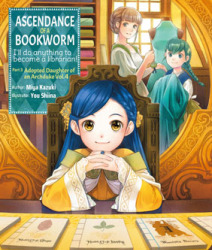
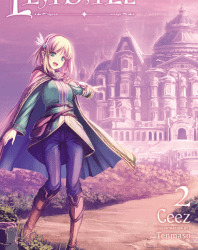


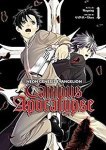

Reader’s Corner: The Girl Without a Face, In the Land of Leadale, and Rascal Does Not Dream
Ascendance of a Bookworm: Part 3, Vol. 4
The newest volume in Miya Kazuki’s Ascendance of a Bookworm series dropped yesterday, and there’s a lot to take in this time around—from printing presses to prancing trees to turbulent politics. As the archduke’s daughter, Rozemyne is finally able to make use the printing press she had made many volumes ago, and with a visit to Illgner on the horizon, the bookworm’s horizons shine brightly. But there are dark clouds looming in the distance. And while I don’t want to spoil any details about the particulars of the book, I will say that I did not expect the stakes to rise so quickly. Still, Kazuki’s talent for illuminating the little things continues to shine. I loved the interactions between Rozemyne and Ferdinand, and I appreciated the trace details about magic; I’m sure we’ll be seeing more of both of those things in Part 4. In any case, expect to rejoice with Rozemyne as her inventions continue to prosper, and to be dragged along with her friends as she ascends to greater heights. ~ sleepminusminus
Ascendance of a Bookworm: Part 3 Vol. 4 is published by J-Novel Club.
In the Land of Leadale, Vol. 2
I felt the first volume of this isekai’d-to-a-world-based-on-a-game story was somewhat underwhelming, but I’m glad I still tried volume two because it was a lot of fun. The highlight of the story is still protagonist Cayna’s family interactions. Back when this world was a game she played on Earth, Cayna had been able to designate certain NPCs as children or other relatives. Mentally and emotionally, Cayna is still an inexperienced seventeen-year-old, but now’s she a centuries-old elf with (so far) real children, grandchildren, and great-grandchildren (plus a niece). Her struggles to adapt to this reality are entertaining, as are her progeny’s efforts to keep up with their eccentric, overpowered matriarch. Another highlight of this volume is learning that Cayna isn’t the only isekai’d person in this world—there are others (including one from a world other than Earth!). I found this volume a striking improvement on its predecessor, and happily recommend it. I’m eager to see where this lighthearted adventure goes next. ~ JeskaiAngel
In the Land of Leadale (Vol. 2) is published by Yen Press, who provided a review copy.
The Girl Without a Face
This one-shot manga centers on a guy and his noppera-bou girlfriend, a youkai that looks like a human girl, except, well, without a face. The manga is basically just slice-of-life snippets of their days together. It’s 100% fluff, with no real deeper themes or major drama, just the two of them trying to find ways to show their love for each other when one of them can’t use words or facial expressions to do so. Surprisingly enough, despite how the two live together and spend basically half the book clinging to each other, the manga is completely chaste, with nothing even resembling fanservice or a sexual relationship. It’s just a lot of cuddling, hand-holding, some kisses, and a whole lot of diabetes-inducing sweetness. Look elsewhere if you want something actually serious, but sometimes you just want to indulge in some pure cuteness, and in this regard, this manga is sure to put a smile on your face. ~ stardf29
The Girl Without a Face is available from Yen Press, who provided a review copy.
Rascal Does Not Dream of Bunny Senpai (Rascal Does Not Dream Vol. 1)
Since *ahem* someone got distracted and kind of didn’t finished reading in time to contribute to the recent LNC discussion of this volume, I figured maybe I could belatedly say something here. If I had to summarize this volume, I’d say it’s The X-Files + Bottom-Tier Character Tomozaki: half paranormal mystery and half high school romcom, with a dash of sociology (especially as a related to the dynamics of a Japanese high school classroom). The real highlight of the volume is the banter between the leads, Sakuta and Mai; they have distinct voices and make great foils for each other. As an added bonus, I felt the light novel explained a few points more clearly than the anime adaptation did. The story also has some truly excellent messages, which I’ve highlighted before. Notwithstanding my lamentable failure to finish this volume in time for the Light Novel Club, I quite enjoyed it and intend to continue with the series. ~ JeskaiAngel
Rascal Does Not Dream of Bunny Girl Senpai (Rascal Does Not Dream vol. 1) is published by Yen Press.
Neon Genesis Evangelion: Campus Apocalypse, Vol. 1
One of many alternate universe takes on the Evangelion characters, Neon Genesis Evangelion: Campus Apocalypse opens with Shinji seeing two classmates from NERV Academy (Kaworu Nagisa and Rei Ayanami) chasing after some form of monster in the night. The first volume then follows Shinji as he learns from Kaworu about the creatures known as angels who take on human form by possessing corpses. The angels in this AU are, in effect, vampires. Long story short—Shinji basically joins them to become a vampire hunter with the “Eva” being an internalized weapon that he can summon at will to defend himself against the vampires: Shinji Ikari, Vampire Hunter. I’m sure there’s more depth coming in later chapters, but that’s the vibe I get from volume 1. Honestly, it’s not bad. ~ MDMRN
Neon Genesis Evangelion: Campus Apocalypse, Vol. 1 was published by Dark Horse Comics, but is currently out of print.
My Youth Romantic Comedy is Wrong, As I Expected, Vol. 3 (manga)
What’s most notable as I make my way through the manga adaptation of my favorite light novel and anime series is that the early parts of the story—in all three platforms—march toward a distinctly different direction than where it ultimately ends. The appearance of a typical love story is heavy early on, and is presented particularly well in the manga format. Naomichi Io, the mangaka behind “Comigairu,” finds his strength in adapting and sometimes creating new scenarios that focus on romance and humor. His close-ups of the characters, particularly Yukino and Yui, are stunning—if Hikki’s defenses remain strong against the girls, readers won’t be able to prevent themselves from falling in love. And this particular volume is full of panels highlighting the girls as it focuses on the romcom aspects of the series, rarely falling too far down into Hikki-talk and instead, following him through a quandary that upsets his relationship with Yui and allows him to become more intimate with Yukino. Volume three is a transitionary part of the story, but a lovely one, regardless, both for fans of Oregairu and those who simply love a good romantic comedy.
My Youth Romantic Comedy is Wrong, As I Expected, Vol. 3 is published by Yen Press, which provided a review copy.
#Manga#Light Novels#Ascendance of a Bookworm#Honzuki no Gekokujou: Shisho ni Naru Tame ni wa Shudan wo Erandeiraremasen#In the Land of Leadale#Leadale no Daichi nite#The Girl Without a Face#Kao ga Nai Onnanoko#Seishun Buta Yarou#Rascal Does Not Dream#Neon Genesis Evangelion: Campus Apocalypse#Shin Seiki Evangelion Gakuen Datenroku#My Youth Romantic Comedy Is Wrong As I Expected#Yahari Ore no Seishun Love Comedy wa Machigatteiru.#Oregairu#Reader's Corner#Articles#Author: sleepminusminus#Author: Jeskai Angel#Author: stardf29#Author: MDMRN
67 notes
·
View notes
Text
Writing Romance: Opposites Attract
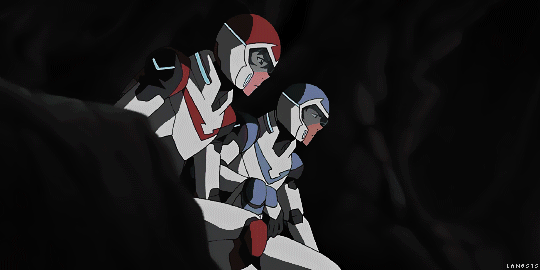
One of the most widespread among romantic tropes is opposites attract, and with good reason. When a couple are opposites, they’re meant to be one of a few things to each other:
1. An inverse reflection of each other.
2. Compliment each other
3. Cover each other’s shortcomings
In a sense, a good Opposites Attract serves to turn two incomplete people into one solid force. If they’re a battle couple, they’ll tend to fight very well together, often balancing force and finesse, melee and ranged, or physical and magical abilities. If the show or book has a lot of time dedicated to foils and character moments, they are more likely to be the ones that each other lean on, since their opposing characters makes them interesting to react off one another. Their roles, story arcs, and backstories tend to run opposite or parallel to one another depending on the series. If one character’s arc is to mature and become more responsible, likely their partner’s arc might be to learn to loosen up and have fun, learn to trust people, or to face a trauma in their past that made them so mature at a young age.
In terms of design, opposites attract partners tend to be inverse in color schemes. Light and dark hair or eyes, warm and cool color schemes, clashing or complimentary fashion styles, etc. The degree in opposition also varies. Some opposites attract look very similar with only a slight difference, indicating that something small is what set them on different paths in life but are otherwise very similar, almost as two sides of the same coin. Other couples are stark contrasts with virtually nothing in common to really emphasize their differences so that they can better make each other whole, as shown very literally through the character of Garnet in Steven Universe.
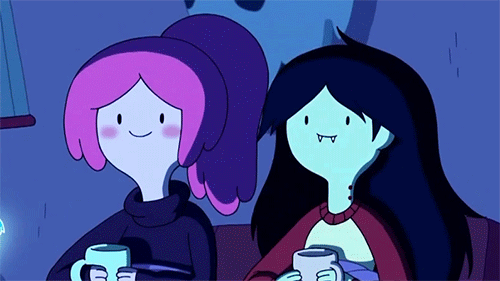
Femme and Butch
While typically, you’re mostly going to see this in femmeslash/yuri pairings, this dynamic is actually fairly universal. This divide focuses on a pairing where each couple reflects the values of masculinity and femininity. Although mostly used as lesbian terms, a femme and butch pairing can also be gay or heterosexual. A fashion-loving twink who cries during romantic movies dating a jock who likes sports and drinks beer is still an example of Femme and Butch. Heterosexual is rather obvious, but can also be inversed, with a tough, assertive woman partnered with a sweet, sensitive man, such as Calhoun and Felix in Wreck-It Ralph. A Femme and Butch pairing doesn’t need to check off every box on this list of traits, but these traits tend to be common in these types of relationships.
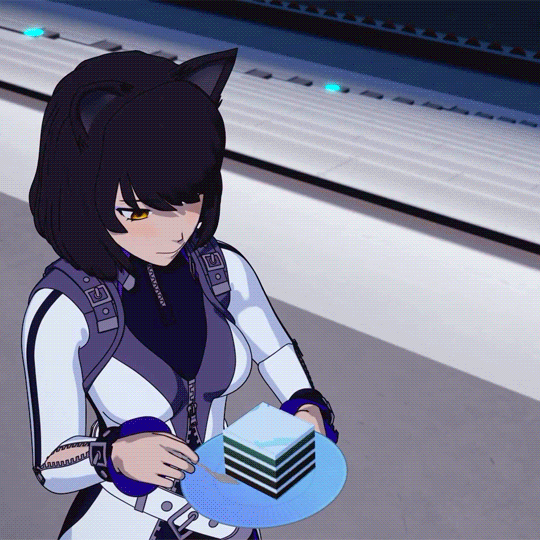
Brains and Brawn
Also known as Jock and Nerd, this romantic dynamic prioritizes the usefulness of both intelligence and brute strength. Another variation is Book Smarts vs Street Smarts. The Brains will be good at doing research, organizing, and will tend to fight more strategically while the Brawn is primarily going to be good at fighting and likely protecting the Brains from serious harm. Princess and Bodyguard is another possible example of this dynamic, albeit a little less directly.
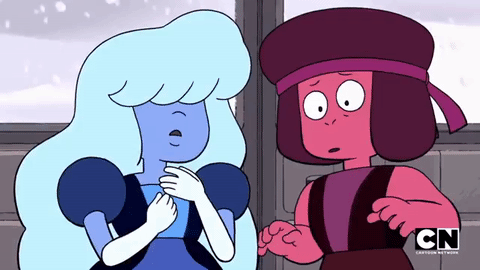
Hot and Cold
Hot or Warm characters tend to be friendly, outgoing, upbeat, loudmouthed, temperamental, boisterous, and battle-ready. Cold or Cool personalities tend to be shy, calm, quiet, logical, reserved, serious, and emotionally withdrawn. However, while these extreme opposites of hot-head and cold-shoulder balance each other out, it’s worth discussing same heat relationships. Kiribaku is an example of a Hot/Warm relationship, as Bakugou Katsuki is an angry little spitfire with an aggressive streak, while Kirishima Eijirou is a happy-go-lucky sweetheart with a good attitude. This is sort of the same concept, just that both boys are on the warm side of the spectrum, with Kirishima being the cooler counter to Bakugou’s temperamental hot-head. This also works inversely, as the ship Tododeku is a Cold/Cool relationship. Midoriya is a shy, but upbeat young man who tends not to draw too much attention to himself, while Todoroki is stoic, logical, and a bit dense socially. In this case, Midoriya is Cool while Todoriki is Cold, with Midoriya serving as the “Hot” aspect of their relationship as the more friendly and outgoing of the two.
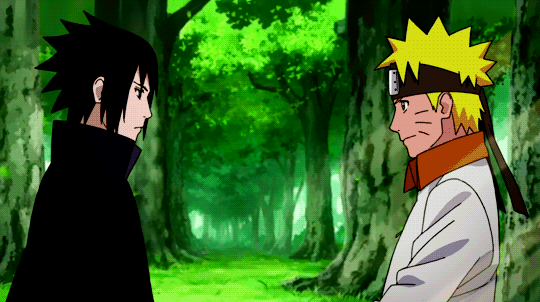
Light and Shadow
This archetype is often used as a “opposite sides of the same coin” format, where the characters serve as foils to one another. In Teen Titans, Raven’s powers are dark and demonic, while Starfire’s are bright and extraterrestrial. Both girls get their powers from their emotions, but where Starfire revels in her emotions to make her powerful, Raven must suppress her emotions to retain control of her powers. As the only two girls, they stick out as the obvious foils of the group. Many times, when this trope appears, it’s in the form of Classic Paragon Hero vs Cynical Anti-Hero. Superman and Batman are a great example. Superman is a boyscout token good guy, while Batman is a brooding loner. One is the hope for justice and goodness to always triumph while the other acknowledges that people are flawed, and maybe not everyone deserves to be saved. Naruto is interesting because he has two dark reflections. The first is Sasuke. While Naruto is the golden-haired idealist who befriends villains almost as often as Steven Universe, Sasuke is a dark counter consumed by a thirst for vengeance and the power to exact it. Naruto’s other dark counter however is Gaara. Both are Jinchuriki, but whereas Naruto eventually found friends and love in his fellow genin, Gaara was very much still alone when he met Naruto, reflecting what Naruto could have become without that love and support in this life.
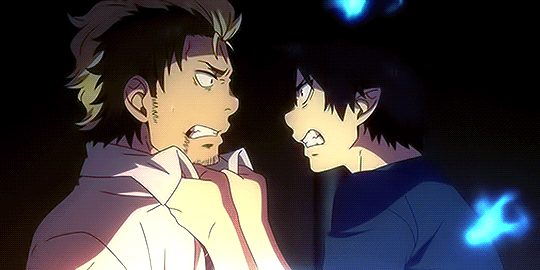
Protagonist and Rival
Another case of “two sides of the same coin”, most anime protagonists and their rival tend to either have very similar backstories, very similar motivations, or very similar personalities, if not some combination of the three. Both Naruto and Sasuke were abandoned in the world at a young age with the Hokage looking out for them from afar. Naruto started off having nobody, and was always reaching out hoping to connect with anyone. Meanwhile, Sasuke started with a family and lost it, and decided to keep everyone at arm’s length and isolate himself further. Rin Okumura and Ryuji Suguro are practically the same person. Both lost their families and homes due to Satan, both are strong-willed loudmouthed tough guys with a knack for leadership, and both share the goal of killing Satan. Natsu Dragneel is immature and battle-ready, but while Grey Fullbuster at least pretends to be above it, he’ll jump into a fight with Natsu practically unprompted. The main appeal of the anime protagonist and his rival is that they push each other to succeed, often coming from very similar roots, but where they end up is entirely up to the effort they put in and the path they choose to take. They both refuse to lose to each other, and that propells them to constantly want to out-do each other.
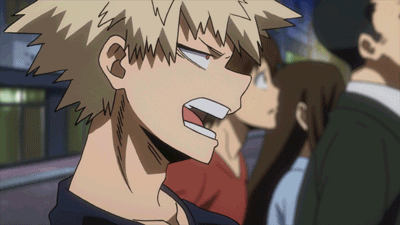
Sweet and Sour
My best friend and I are polar opposites in this sense. When we met, she was far too trusting, submissive, and far too forgiving. Meanwhile, I was a lot more cynical, mean-spirited, and unfortunately, a little more closed-minded than I’d like to admit. After five years of friendship, my friend is far more assertive, has a lot more confidence in herself, is a lot better at handling criticism, and rather than just submitting in an argument, she now has the nerve to get in someone’s face and make her point heard. Because of her, I’ve become less stand-offish, more patient and polite, less of a control freak, more aware of valuing other people’s emotions, and more tolerant of a group I hadn’t realized I’d been intolerant toward. We saw the world in such distinctly different ways that we have managed to rub off on each other, and now we’re both such stronger and more complete people for having known each other.
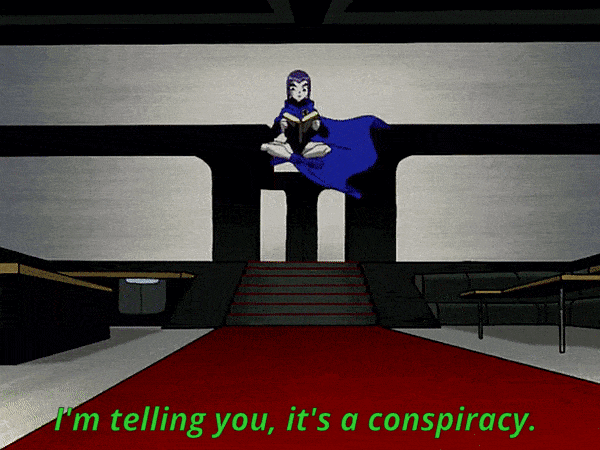
Serious and Goofball
A classic comedy duo, the comedian and the straight man. The Goofball character tends to be immature, a knucklehead, a jokester, and comes off as a bit inexperienced. Meanwhile, the Serious character tends to be mature, responsible, disciplined, but comes off as a bit aloof. The Goofball reminds the Serious character to have a little fun every once in a while, while the Serious character reins in the Goofball before they hurt themselves or somebody else.
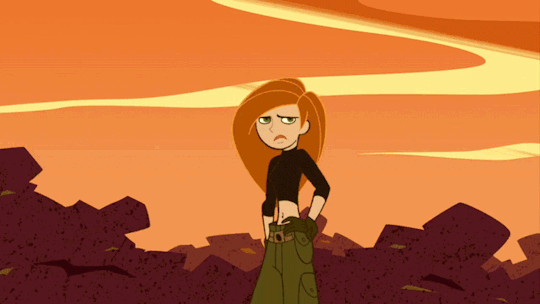
Hero and Sidekick
The hero has their act together and the sidekick is just doing their best. This happens a lot in Action movies where the handsome tough guy and the hapless damsel (who he kidnaps a little too often for my liking) is just kind of along for the ride. The two live in entirely different worlds. Sometimes this comes in the variant of Starlet and Manager where one in the relationship takes center stage while the other is content to help them run their life, promote their career, and help them. Another variation is Superstar and Random Extra, wherein one person leads a very visible life in the public eye being adored by millions of fans while their partner works 9-5 in an office dealing with insurance claims. Although they coe from very different worlds and lead very different lives, that doesn’t mean they still haven’t found love in an unlikely place. Often, the reason the hero or big shot loves this random nobody is because they fell in love with them before they ever became famous, or they didn’t know/care who the celebrity was and just liked them as a person without interest in using their celebrity to climb the social ladder.
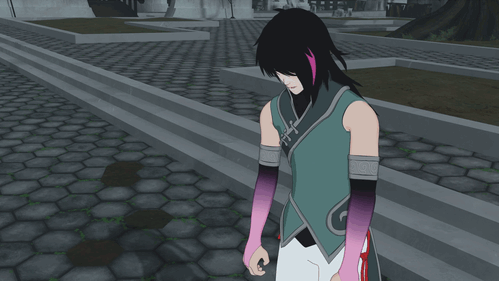
Loud and Quiet
She’s quirky, outgoing, bubbly, energetic, and talkative. Too talkative. She never shuts up. He’s quiet, simple, down-to-earth, and calm. Too Calm. He never gets excited. This pairing works to push and pull each other until they’ve harmonized. The Quiet one will be pulled out of their shell and learn to be more open and talkative, while the Loud one will learn to think before they act. This couple is divided along lines of Introversion and Extroversion, and together can navigate the anxiety-triggering unease of a social gathering, and finding joy and pleasure in just enjoying each other’s company without needing to fill the silence with pointless chatter.
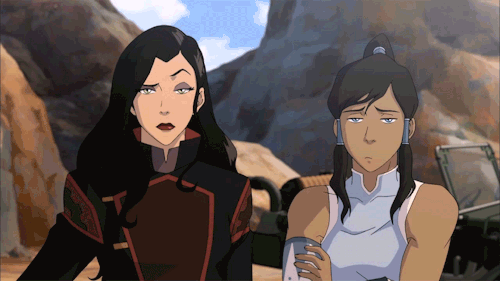
To be fair, many Opposites Attract couples will fit into more than one of these archetypes, and there’s probably more I didn’t list. But if you’re wanting to create a couple that balances each other out, I hope you find this helpful to you in your writing.
#writing#writeblr#shipping#ships#writing relationships#writing romance#love story#shippers#shipper#ship#how to write#how to write a ship#opposites attract#red and blue#writing couples#couples#couple dynaics#ship dynamics#relationship dynamics#love is love
4K notes
·
View notes
Text
TerraMythos 2021 Reading Challenge - Book 15 of 26
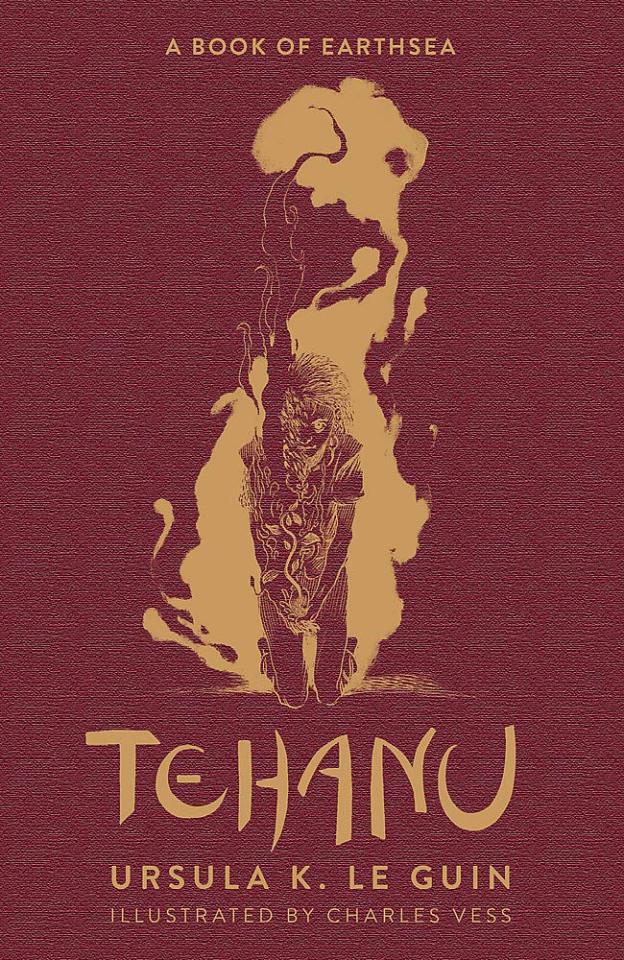
Title: Tehanu (Earthsea Cycle #4) (1990)
Author: Ursula K. Le Guin
Genre/Tags: Fantasy, Fiction, Third-Person, Female Protagonist
Rating: 8/10
Date Began: 6/24/2021
Date Finished: 6/30/2021
Decades after The Tombs of Atuan, Tenar decided to settle down and live an ordinary life on the shepherding Isle of Gont. Now a farmer’s widow, she adopts a disfigured and horrifically abused child, who she names Therru. When a giant dragon deposits a grief-stricken Ged at her doorstep, Tenar finds herself in a strange situation as she cares for her old friend and her adopted daughter. But threats from Therru’s past and a malevolent force on the island soon threaten Tenar’s small family.
Despair speaks evenly, in a quiet voice.
Content warnings and spoilers below the cut.
Content warnings for the book: Violence and death. Mentioned murder. Severe child abuse. Descriptions of traumatic injury and disfigurement. Mentions of r*pe, including of children. Trauma, sexism, and ableism are explored in depth.
Tehanu is a much different book than the trilogy that precedes it. Perhaps this is unsurprising, considering the 17-year gap between this book and The Farthest Shore. I’d describe the Earthsea series as “grounded fantasy”. While all of them take place in a magical world, the thesis of each book is universal; the fantasy always comes second. Tehanu takes this idea to an extreme. The story is about everyday life as a common woman in the Earthsea world, with fantasy barely factoring in. The pacing is intentionally slow and introspective, which is something I normally don’t like, but Le Guin is a consistent exception.
Key characters from the previous books make an appearance. Obviously Tenar is the biggest return, absent since The Tombs of Atuan. The Tenar in this book is older and much more mature, having decided to live a simple life in spite of her adventures and accomplishments. Ged returns, but he’s a shell of his former self, as he mourns the loss of his magic and the man he used to be. Even King Lebannen (formerly Arren, the main character of The Farthest Shore) makes a brief appearance, and is quite a palate cleanser after the horrible men throughout the rest of the book.
Probably my favorite aspect of the novel is the fact that these characters stand well on their own without magic to prop them up. Tenar explored the terrifying freedom she won in The Tombs of Atuan; got married, settled down, had kids — but still finds herself at a loss on what to do with her life after her husband dies. Ged is in a similar boat; he’s gone from an almost mythic character to an ordinary man, and like Tenar finds himself at a crossroads in life. Other characters embody this idea of transformation and uncertainty; Therru’s escaped her abusers and now has a loving mother, but what does the future hold for someone with her appearance? Stuff like that.
The idea of metamorphosis and new beginnings is well-trodden. But what makes Tehanu interesting is Le Guin primarily examines this with the middle-aged characters. Tenar and Ged are legendary figures in the world of Earthsea, but life has taken them to an uncertain future. The thrust of the novel lies in finding a purpose and becoming someone new. I also like that Tenar/Ged is endgame; I got Vibes from The Tombs of Atuan, but neither character was in a position where it would work. Seeing them form a romantic relationship much later in life is touching and cute. But it’s not the reason that either of them grow as people; finding one’s purpose is something one has to do on their own. Their relationship only develops once both parties have done so.
My main complaint about A Wizard of Earthsea, the first book, is the sexism inherent in the setting, which is never examined below the surface level. Perhaps Le Guin’s outlook changed, or perhaps the publishing environment did, because often Tehanu reads like a response to this criticism. The central theme of the book is misogyny, the patriarchy, and its debilitating effects on women. Le Guin examines everything from micro-aggressions (“common wisdom” that happens to paint women as inferior) to domestic issues (“women’s work” and how much that actually is) to outright sexual assault (both in threats and actual acts; it is heavily implied this is part of the abuse Therru endured). She even goes into how powerful women are only considered as such because a man gave them that power.
While I appreciate the fact she addresses these issues in such a frank, blatant way, at times reading Tehanu felt like reading a basic feminism primer. These subjects are all things I’m familiar with, and I feel like anyone who’s studied key feminist ideas would be aware of them also. Maybe 1990 was different? Le Guin doesn’t add any insights to the bleak reality of patriarchy and sexism, which is a little disappointing compared to previous books. That being said, this book is aimed at young adults despite its dark subject matter. Tehanu could be the first exposure to these ideas that many children receive; looking at it that way, it makes sense that the analysis comes off as basic.
I also found the book’s examination of gender to be very cishet-normative. That’s definitely not surprising, considering the book was published in 1990, but to a 2021 reader this hasn’t aged super well. There’s a lot of discussion about the relationships and differences between men and women--whether there are any or not, how magic differs between them, the ability to bear children, and so on. There’s a weird sexual component to this, like how wizards (who are exclusively men) have to remain celibate in order to… keep being wizards? But women who are witches don’t have to do that, and that’s an advantage women have? (There’s mentions of male witches too, iirc, but it’s not expanded upon— do they have to remain celibate? Who knows.). I found this whole bit pretty odd and unnecessary, although I realize a lot of my perspective on the matter comes from a modern view of sex and gender (and, y’know, being trans). Not all the gender takes in the book are bad, but they are limited.
I found Le Guin’s exploration of trauma and ableism through Therru to be more interesting. There’s a lot of examination about how society treats Therru, a survivor of unspeakable abuse. Her trauma is visible due to severe burns along part of her body, leaving her with a missing eye and disfigured hand. Tenar spends much of the novel wondering what future Therru has; no matter how capable she is and how much she acts like any other little girl, strangers gawk at her, or assume she “deserved” what happened to her. Therru becomes happier and more independent over the course of the novel, but relapses into a traumatized state when she encounters one of her abusers. As a survivor, it’s heartbreaking and distressingly realistic. As much as I like Tenar, I almost wish the novel was from Therru’s perspective (other than the brief jump at the end), but I realize it would spoil the ending.
I’m torn on the ending because, while I thought it was cool and had some interesting revelations, it’s a jarring tonal shift. As I mentioned, Tehanu is a slow novel with a heavy focus on everyday life, and the trials and tribulations both Tenar and Therru experience. There’s even a climactic event a few chapters before the end; the only thing left is a persistent loose thread from earlier in the novel. That subplot explodes to the forefront a bare chapter and a half before the end of the book, and a lot of action-y fantasy stuff happens. It doesn’t come out of nowhere; it’s set up throughout the novel, but it is sudden.
That being said, I do like that the subplot with dragons vs humans is hinted at as early as The Tombs of Atuan. When Tenar tells the legend about the origin of dragons early in the story, my mind immediately went to that one room from the Labyrinth with the sad winged humanoids painted on its walls. I’m curious if there are hints elsewhere in the series. I also figured out Therru’s true name and how she relates to that subplot based on context clues. While it’s not a shocking twist, it is a satisfying one. Though parts of it gave me a “magical destiny” vibe which is counter to much of the series so far; I do wonder how the last two books will address this. (Also… did Le Guin imply Kalessin is Segoy? AKA God? What did she mean by this. So Ged literally like… hitched a ride from God, who promptly yeeted out of the story until the end? That’s kind of funny. Maybe I misinterpreted something.)
I probably sound critical of this book, but I did genuinely enjoy it. It just didn’t speak to me the way the previous two did. The next book is a short story collection before the conclusion to the series, so we’ll see where it goes! Tehanu set some stuff up that I expect will be expanded upon in these volumes.
14 notes
·
View notes
Text
Fan apprentice Bios
for the alotsgonnachange/the arcana cinematic universe that eye personally believe to be better than the original game...

Name: Isabella Ciccino
Meaning: Promise of God
Gender: Female
Pronouns: She/Her
Height: 5′10
Birthday: October 28th
Star sign: Scorpio
MBTI: ISFJ-T
Patron Arcana: Justice
Sexuality: Lesbian
Favorite Food: Lemon chicken orzo
Drink: White wine (Vinho Verde)
Magical abilities: Plant care/recognition (green witch), Foraging
Ethnicity: A small rocky/mediterranean esque island off the coast of Venterre that would strongly resemble sicily and malta.
Family: Mother, Angela Ciccino (deceased). Younger sister, Annamaria Ciccino (deceased)
Backstory: WIP
Occupation: Seamstress/tailor
Hobbies: Ballet, reading, drinking wine, dancing, tending to plants
Familiar: None (for now i guess??)
Love Interest: Nadia
Description: Isabella is a mysterious and alluring magician. To most people she is kind and charming, but private. She is incredibly helpful and caring to those she is friends with and cares about and will drop what she’s doing to assist. Likes to do quiet introspective work like reading, sewing, knitting and caring for plants. She’s a bit of a homebody in that sense. She comes across as level-headed and assertive in formal settings and does not allow others to talk down to her. With friends, she is a bit more sassy and teasing. She hates answering personal questions and has strict boundaries, which can lead to her being standoffish and stubborn at times.
As a Love Interest: Very loyal and committed, generally very gentle towards whoever she is seeing. You are going to have to get her to open the fuck up though she’s not good at being vulnerable AT ALL. The type of gf who may or may not qualify as a therapist/mother which…yikes. needs to work through her fear of intimacy before she can have a healthy relationship awwww 5/10
___

Name: Danielle Dupont
Meaning: God is my judge
Gender: Female
Pronouns: She/Her
Height: 5′6
Birthday: September 7th
Star sign: Virgo
MBTI: ENFP-A
Patron Arcana: The Sun
Sexuality: Bi
Favorite food: Pain au Chocolat (Chocolatine for my canadians…)
Favorite drink: Espresso or a good wheaty ale
Magical Abilities: Sexual magic, chemistry/potionmaking, candle magic, topical balms/solutions
Ethnicity: Whatever the Arcana equivalent is of like. Western Europe germanic? A country including but not limited to Germany, France, Belgium, Luxembourg, Switzerland. Who cares really she is white and an Orphan
Family: Orphan!
Backstory: WIP
Occupation: Shop owner who sells potions, balms, candles and various other uhhh items usually of the purpose of sex (literally think a modern day sex shop with dildos and shit but also candles and skincare too)
Hobbies: Socializing, singing, making/testing potions, foraging, baking
Familiar: None, is in fact frightened of several animals due to trauma :(
Love interest: Lucio (Her taste is questionable and that’s okay!), also portia
Description: Danielle is a cunning and animated witch. She’s outgoing, bright and carries herself with confidence. In the past this has made her friends and enemies alike. She’s charming but can be a bit of a trickster. Her demeanor is generally calm and she does not often experience strong anger. She’s very smart and dedicated to her craft, and she is a perfectionist. As a worker, she gives excellent customer service and is a good saleswoman. To her friends, she’s teasing and wild, but loving and encouraging. On her worst days, she has the potential to be a bit more inconsiderate and is not the best at handling huge displays of emotions from others.
As a Love Interest: Girlllll…. first of all she needs to stop being emotionally stunted! My good sis cannot handle open displays of emotion at all and tends to shut down! The physical aspects are all there and excellent and she is going to be sweet, caring and loving but she needs to take things more seriously and be able to talk about feelings!!! 3/10
____

Name: Jia Song
Meaning: In korean it’s “clear” or “good”
Gender: Female
Pronouns: She/her
Height: 5’5”
Birthday: August 5th
Star sign: Leo
MBTI: ENFJ-A
Sexuality: Bi
Favorite Food: Pulled pork or a good seasoned steak
Drink: limeade
Magical Abilities: Potions/herbs and healing
Ethnicity: Her father is from the same country as Ki (in a modern AU, this would be like. Korea.) and her mother is from somewhere uhhhh near nopal or something. Warm tropical nice (in a modern au this would be Brazil), but she grew up in her mother's country.
Family: I don't currently have names but basically, her father, mother, aunt (deceased) and two younger brothers.
Backstory: will be linked coming soon
Occupation: Healer, researcher, linguist
Hobbies: Dancing, reading, adventuring
Familiar: None
Love Interest: Julian
Description: Jia is a bright and curious magician. She’s a bit nerdy and loves reading/learning new disciplines. She is an energetic and altruistic person who is liked by many. She comes off as kind and forthcoming. She is very helpful and if she can’t help directly she will find someone who can with her connections. To her friends, she is loyal and sweet and affectionate, but also has the potential to be grumpy and even a bit negative. She’s very determined in hard situations and won’t back down until things are made right. Despite this, she can potentially overthink and overestimate situations and is incredibly stubborn when she wants to be.
As a romantic partner: loving, but definitely also able to keep independence. Not necessarily a stage 5 clinger but somewhere in the middle. She will love just spending lots of time with a partner and just picking their brain and learning everything she can from them. The type to brag about them to her friends. A wonderful listener but give her a chance to speak too she likes talking a lot as well! 10/10 would recommend
____

Name: Ki (Kiyoung) Kim
Meaning: Debatable but Ki alone means arisen and i’m getting “Vigor and eternal” But i think names differ based on the characters u use i am not korean so take this with a grain of salt
Gender: Nonbinary i think...
Pronouns: He/him or they/them doesn't have a preference
Height: 5′8″ Short king
Birthday: February 27th
Star sign: Pisces
MBTI: INFP-T
Sexuality: Gay
Favorite food: Budae Jjigae or Yongeun jorim
Favorite drink: any alcoholic beverage where you can’t taste the alcohol and strawberry milk
Magical Ability: Divination and mediumship (idk what the proper term is) so he can communicate with spirits/the dead
Ethnicity: Think of a small nation veeeery far away from Vesuvia that's cold for a lot of the year (for reference, think Korea).
Family: a twin sister named Jiyoung, 3 older sisters (Jiwoo, Jeongyeon, Joonhwa), mother and father and paternal grandfather and maternal grandmother who are living.
Backstory: will be linked coming soon
Occupation: Musician - mostly guitar and piano. Enjoys instrument care, arranging and performing in large ensembles, not a soloist by any means. He’s a great singer but he’s shy and singing gives him anxiety
Hobbies: Playing guitar, composing/arranging, reading, writing, shopping
Familiar: a tiny white dragon named Egg. Idc if dragons exist in this world but i feel like they HAVE to..
Love Interest: Asra
Description: Ki is a perceptive and witty magician. To most he comes off as a bit anxious and shy, which he is. Once you get past that, he’s eager, forthcoming and empathetic. He is very kind and likes to believe people have good intentions. He is very helpful and always tries to make sure others are comfortable and happy. He enjoys music and learning musical instruments. He prefers to work more in the background so as to not draw attention to himself. With his friends, he’s actually very talkative, silly and goofy. He’s prone to anxiety and may tense up or feel attacked when put into frightening situations. Unfortunately he has self destructive tendencies and low self esteem and has a hard time due to that.
As a Love Interest: perfect little s/o shut the FUCK UP…. that is if u can deal with low self esteem and anxiety! He really really tries though! He’s also shy with physical affection but will warm up to it eventually with familiarity and trust. Very doting and randomly shows up with delicious food and takes care of u when ur sick. 8/10
____

Name: Mathilde “Tilly” LaRue
Meaning: Mighty In Battle? Lol
Gender: Female
Pronouns: She/her
Height: 5’11
Birthday: January 16
Star Sign: Capricorn
MBTI: INTP-A
Sexuality: Bi
Favorite Food: Lentil soup
Drink: Black coffee
Magical Abilities: Divination, telekinesis, herbs, defensive magic
Ethnicity: From a large urban area with a large population somewhere in an area a bit cooler and rainier than Vesuvia. (think like. England)(in a modern AU think Afro-caribbean)
Family: Mother and Mother and an older sister named Topaz
Backstory: will be linked coming soon
Occupation: Court Magician (but like simply a well rounded witch who goes wherever the money is)
Hobbies: Exploring, foraging, reading
Familiar: A white ferret named Elle
Love Interest: Muriel
Description: Mathilde is a gentle and thoughtful magician. She is soft-spoken and hates raising her voice, and is often making bizarre and thought provoking side comments in most situations. She is curious and intuitive when it comes to magic and often able to use several methods to predict the future for others. She carries herself in a dreamlike/contemplative manner and does not really care what others think - She’s off in her own world. With friends, she has a good source of humor and gives good advice and is a very good listener. She has an affinity for animals and nature, and would generally prefer to be outside. She can tend to be unrealistic and naive and loses hold on her emotions in tough situations (angry crier…) and feels misunderstood by those around her.
As a love interest: Downright adorable. Sweet, will bring you cool items she found and very endearing. She’s also encouraging and surprisingly cheesy. Not outwardly clingy but if you let her she will. but good fucking luck starting to date her! She is extremely pretty and gets asked out almost every day, turning down 99.999999% of applicants because other people do not particularly interest her and her taste is insanely picky! 10/10 but FAT CHANCE
14 notes
·
View notes
Text
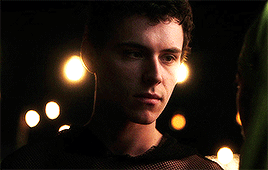
[ ARON PIPER, CIS GENDERED MAN, HE/HIM ] shh ! LEOCADIO SYNDER, the TWENTY-TWO year old SECOND year ECONOMICS major from MADRID, SPAIN, is known as a DIAMOND around here. HE was invited to join because OF HIS PERSISTENCE AND HIS FATHER WAS IN THE SOCIETY, and now, they’re here to stay. HE reminds me of A LEGION OF STAFF CONSTANTLY AT YOUR SERVICE, A WARDROBE FILLED WITH THE FINEST MATERIAL, + EXPENSIVE RINGS ON EACH OF HIS FINGERS.
helloooo!! it’s been a long time coming but i’m finally excited to be here and join in on this super cool story the admins and all of you have created! i’m lia, i’m 23 and i go by she/her and they/them pronouns, so feel free to use either of them. i was going to make a graphic and a google doc but i’ve got plans with my family to watch a movie tonight, so until i can make the time i hope his app is enough!
a past and character reflection.
you were born into success and luxury, the only child of two glencore billionaires — a diversified natural resource company. the synders are responsible for the marketing of lead and make a little over a billion dollars each year. all they’ve ever known was their jobs and their money, leaving little room for anything more than that, especially the addition of a child. the nannies changed your diapers and the maid picked up your toys, while the butler handled the broken glass splayed across the marble flooring from one of your daily tantrums. they bit their tongues because you were raised to view yourself as extraordinary living in a world of the ordinary. despite this, these people meant more to you than the ones who brought you into the world. you had a mother that asked you how your day went and then immediately turned her attention back to her phone or laptop, checking off that mental to-do-list that made her believe the question was enough effort. you had a father that saw you as weak and continuously pushed you past your limits, focusing on every little flaw you had and giving you no choice but to be better. you became so conflicted between your drive to be the best and your need for love, that anger became your method of coping. even the lightest of offenses were met with your spite and you glorified material things as if it were the only thing that mattered in the world. even at the tender age of ten, power was the one thing that kept you driven.
growing up, you never had any real or close friendships. the people that you called your friends were just more people that you could benefit from — the children from rich and influential families that spanned the globe. regardless of your rude and cold exterior, they still found reason to look up to you like you were their leader, be it an inheritance from your father’s charisma or your mother’s sophistication — because everything you had, you had to thank them for right? you knew exactly how to draw people in and use them until you didn’t need them anymore, kicking them to the curb the second their time ran out. the kids that excelled in school got you the highest grade, the kids that excelled in sports helped you become captain of their teams, and the kids that assisted you in breaking the rules always took the fall. and yet, no matter how hard you proved yourself as this apex predator, your parents saw you as inferior. they always told you to work smarter not harder, but when you did, it still wasn’t enough. what more could you take from the world? it had nothing left to give you.
the next chapter in your life became your second chance to prove yourself, but this time with a different method to your persistence. just as your parents did, you’d build yourself from the ground up, not taking whatever you wanted but fighting to obtain it. you already had the determination to do what had to be done to reach your goals, now all you needed to do was make it yourself. you enter your first year at strathmore university and you never take what you need to succeed, you push yourself until you earn it. every time the fates fight against you and you feel hopeless in meeting these high expectations you and your parents have made for you, you grasp onto the anguish of that ten year old boy yearning for approval and press forward with your strength. you still hold onto that cunning aspect of your character but this time, it’s something you keep hidden beneath the surface — away from prying eyes. you slip up once or twice, but it’s never enough to allow others to see you for who you truly are. you join several clubs even though you barely have the time, slipping your name into the minds of those spanning the entirety of the campus. you maintain one of the highest grades in your classes through dedication and hard work, scoffing at the students that request your assistance … they don’t deserve your help. not now anyway. not while you fight to be noticed in a place filled to the brim with excellent minds. not while you await your invitation to the society, the first step at proving that you can be great just like them. just like your parents.
on the society
upon arriving at strathmore university, leo became obsessive in his studies and joined many clubs to assist in his quest of standing out amongst the other first years. unbeknownst to many though, he also did this in hopes of earning a spot in the secret society. this is because his father had been in the society when he was young and in order to prove his potential, this was an organization he knew he had to be involved in. despite not knowing what the society was like or what they were about, he knew that they existed because of his father but that’s the extent of his knowledge on it.
when he was finally given his chance thanks to the diamond opal, leo became passionate about his spot and willing to do whatever means necessary to keep his spot. he takes advice willingly ( but goes against it if he believes they’re wrong ) and pushes to lead in some situations, not letting anyone or anything stand in the way of his goals. although he mainly does everything for his parents, whether they will ever notice or not, it is also for himself and his desire to be something great ( something he outwardly believes he already is but has struggled with internally for a long time ). leo wants to be the best prodigy and opal that the society has ever seen, and visualizes himself as the diadem when he builds himself up to that point.
when it comes to poppy nighmore, leo is more intrigued than he is worried about the reason for her disappearance. if those within the society that knew poppy are upset about her disappearance, leo is willing to take initiative in trying to solve the mystery. he will take risks and push limits in order to find information, but does so for selfish gain than anything else. he believes that he may prove himself as a worthy and necessary addition to the opal society if he continues researching and physically proving he cares. it also gives him a chance to show the others that he is capable of big things.
wanted connections.
as i read about your characters i’ll be able to generate a bit more ideas when directly plotting with each of you! these are just the ideas i have coming into the group, so if you do not see your character fitting them, worry not! we can brainstorm<3
his soft spot — the person that leo can’t seem to say no to no matter how hard he tries. his entire life he has felt little to no remorse in his conquest for power, no matter who he trampled along the way but suddenly, out of nowhere, the world presented him with this person and every time they’re around, every ounce of him becomes vulnerable. when they tell him to do something or to behave a certain way, he seldom disobeys. if they happen to be in the room when he’s behaving as he normally does, he avoids their eyes in fear of backing down. in a way, this person in his anchor that protects him from himself.
his adversary — the person that gives leo a run for his money, testing him and pushing him every step of the way. they bear too many similarities to get along and compete over even the littlest of things. when one says yes, the other says no. the steve rogers to his tony stark. the thor to his loki.
fellow rich kids — those he knew by association prior to strathmore university or the society. they all understand each other because they grew up in similar conditions, where material things were the forms of love they received as children. they understand the lifestyle and flock together, regardless of whether or not they actually like each other. they board a private jet and escape real life for a weekend, only to return like nothing had happened come monday morning.
his best friend — leo doesn’t know it yet, perhaps neither of them do, but this person is his best friend. close relationships of any kind are foreign concepts to leo because he had, in his opinion, more important things to focus on as he grew up. love doesn’t exist in his world. so by his words, he trusts this person the most and is constantly inviting them around with him. he would never call it as it is in fear of cutting them loose and never feeling an ounce of remorse, but he’s acknowledged it in his head once or twice. this person is like the sibling he’s never had.
his mistake — in leo’s first year, he befriended this person and the pair eventually started to see each other romantically. however, leo wronged them somehow and now that he’s in the society with them, he realizes how big of a mistake he made hurting them. perhaps he fell back into old habits and made their acquaintance with the intention of gaining something, maybe in a class or by their personal influence in the world / at school, and they eventually found out about it. just an angsty exes plot.
his mentor — the diamond that took him as their prodigy. leo takes the dynamic between them incredibly serious and is willing and ready to do whatever they ask of him in order to prove they made the right choice taking him under their wing. he understands that his place in the society must not be taken for granted and so he treats it as a passion, rather than just another club around campus. he rarely does something society related without first receiving the opinion of the opal, but he also would ignore their opinion if he feels they are the one that’s wrong. this is business as usual and leo is their prodigy knowing that if all goes as planned, he will have their seat in the future.
#𝓁𝑒𝑜𝒸𝒶𝒹𝒾𝑜 𝓈𝓎𝓃𝒹𝑒𝓇 〳 ⑉ introduction.#opalsintro#i sweat i'll have a stats / more in depth bio / wanted connection list soon okay#and by sweat i mean swear#sweating too though because all of you are so cool ? catch my leg on fire more like catch my heart on fire#nobody read these tags
19 notes
·
View notes
Text
The Problem with Spidey as ‘Iron Man Junior’
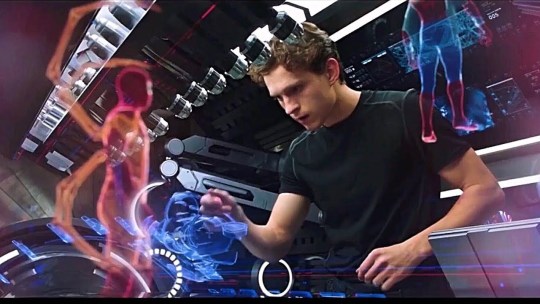
Proponents of the MCU version of Peter Parker have often defended his characterization as logical and necessary in context. But is this really the case?
Tl:dr version: No it is not.
Forgive some laziness on my part because I’m going to be presuming everyone’s familiarity with the comic book iteration of Spider-Man and his MCU adaptation for the most part. To say there is a divide between many fans of former vs. the latter would be an understatement.
Detractors (which I count myself among) typically sum this up as the character being reduced to ‘Iron Man Junior’. In general this refers to MCU Peter Parker’s hero-worshipping of Tony Stark/Iron Man, their father/son relationship and the similar emphasis upon high technology in their hero identities. A connected point of contention is Peter’s aspiration to become an Avenger.
This was outright confirmed by Tom Holland himself in an interview for the then upcoming ‘Spider-Man: Homecoming’.
"I think the difference now is that Peter Parker finally has an all-time goal, and his goal is to become an Avenger…Everything he does, even though he's doing it for the right reasons, is done so that one day he can become an Avenger and prove himself to Tony Stark. And I think we've never really seen Spider-Man with that kind of motivation before."
Defenders of this take upon Spidey have argued that this portrayal makes sense in context.
After all, Peter Parker is a teenager who’s grown up in a world where the Avengers are beloved, especially Iron Man. Plus in the comics (under J. Michael Straczynski’s pen) there was a time when Peter and Tony shared a father/son relationship. Tony even equipped Peter with a high tech costume as he did in the MCU. Spider-Man early in his career attempted to join the Fantastic Four in ASM #1 and later the Avengers in ASM Annual #3.
The problem is these defences just don’t hold up to scrutiny.
Let me first be upfront about my philosophy towards adaptations.
I in no way shape or form demand nor expect adaptations to be 1:1 panel to screen translations of the source material. I fully respect that changes are a necessity.
One of many 22-page comic book stories put out every month in the 1960s inevitably needs to be altered when jumping to a 90+ minute live action film in the 2010s.
Even the characterizations need to be altered where necessary if the source material is found wanting. *side eyes Emma Stone’s Gwen Stacy*
However, my attitude is that adaptations should at minimum respect the spirit of the source material no matter what. To do otherwise defeats the object of adapting the work in the first place. If a film is just borrowing superficial traits (names, costumes, powers, etc.) and but not representing the spirit of the character, then creatively speaking it might as well be an original character.
This is the case with the MCU version of Spider-Man. A fundamental component of Stan Lee and Steve Ditko’s original vision for Spider-Man was that he was in essence the anti-Robin.
At a time when teenaged characters were sidekicks (Dick Grayson), supporting characters (Rick Jones) or the ‘kids’ in teams (Johnny Storm) Peter Parker was unique as a totally independent teen hero. Of course that independence only applied to his life as Spider-Man, but that was part of the point. Spider-Man was his escape and release from the pressures and hang ups of his regular life, which included his doting yet coddling aunt.
A critical part of this was that he was a self-made man. No elder mentor guided him in the use of his powers, helped him create his equipment or provided any sort of advice/accountability for Peter. He did it all himself. He was a loner.
On a meta level this is partially why Stan Lee (and for the longest time consequent writers) showcased Spidey not jiving with super teams. It was done to emphasis Peter’s independence and thereby his uniqueness within the genre. Even if that’s not so unique anymore (even in film), it’s still a baked in component of teen Spidey’s story. An essential aspect of who he is as a character.
As is his working class status.*
In fact these things go hand-in-hand. Just as Peter had to shoulder an ‘adult hero’s’ burden as Spider-Man (noticeably Lee didn’t dub him Spider-Boy or Lad as would’ve been common back then he also had to struggle for every penny. With the death of his uncle and his aunt’s poor health the burden of household provider fell on his shoulders.
When you take all this into account, having him fanboy over the Avengers and have a superhero mentor (let alone a billionaire one) is an aggressive misreading of the character.
The best way I can illustrate this is with an analogy from the opposite end of the spectrum. Imagine if you will a movie depicting Dick Grayson’s transformation into Robin. Except Batman was wholly absent. Not even an off-screen presence.
That is how poorly MCU has missed the point of Spider-Man.
And it was never necessary.
Contrary to defenders of the MCU, making Peter an Avengers/Iron Man fanboy was not the only logical direction to go with the character.**
Yes, in Peter’s world most kids would revere the Avengers and Iron Man. But in the real world not every kid or teen likes the Avengers characters or movies. Just as not every major pop culture phenomenon has ever been universally embraced by contemporary kids/teens. In the 1980s not every kid loved the Transformers or the Ninja Turtles. In the 1990s not ever kid loved the Power Rangers or Pokémon.
Of course, most kids did, just as most kids like the Avengers characters today. Similarly most kids in the MCU by extension would look up to the Avengers. However, if anything this could actually help generate a more spiritually faithful rendition of the character. Consider that on literally the first page of Amazing Fantasy #15 Peter Parker was mocked by his classmates for being an outsider. A bookworm who didn’t know the difference between a cha-cha and a waltz.
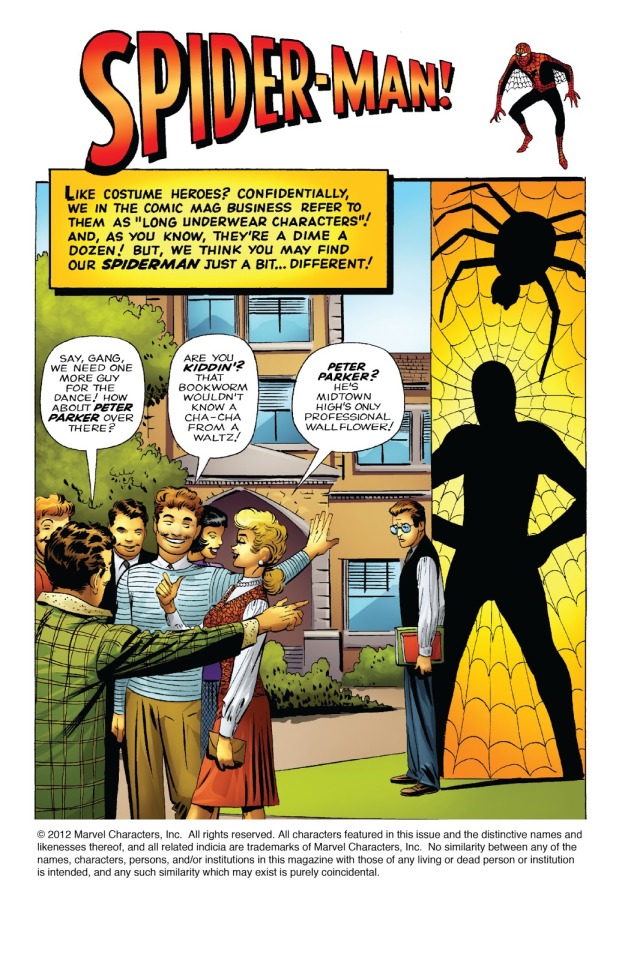
In the context of the MCU wouldn’t Peter’s lack of familiarity or interest in the Avengers make for an appropriate updating of that characterization?
Let’s also consider that in the context of the regular 616 universe Spidey held little reverence for any of the heroes who had preceded him. This included Captain America and other WWII heroes as well as the Fantastic Four and their leader, the world famous scientist Reed Richards. Peter would’ve surely known who Reed and Cap were but as originally depicted by Stan lee himself, he wasn’t falling over himself during any of their early encounters.
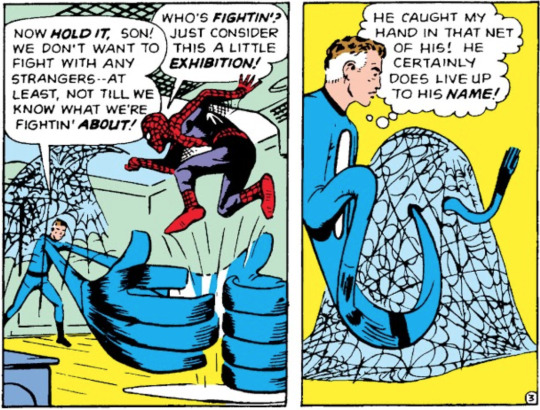
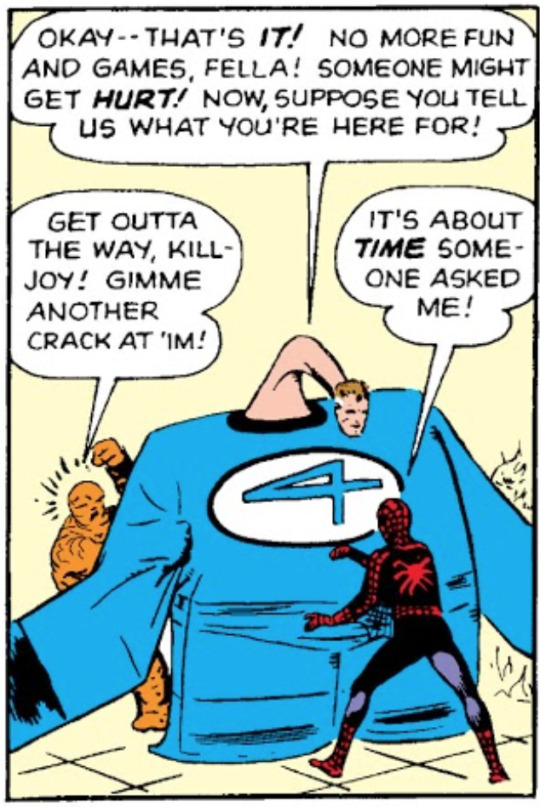

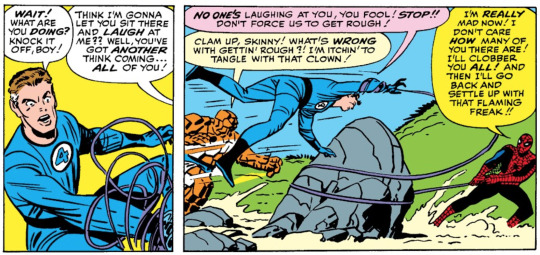
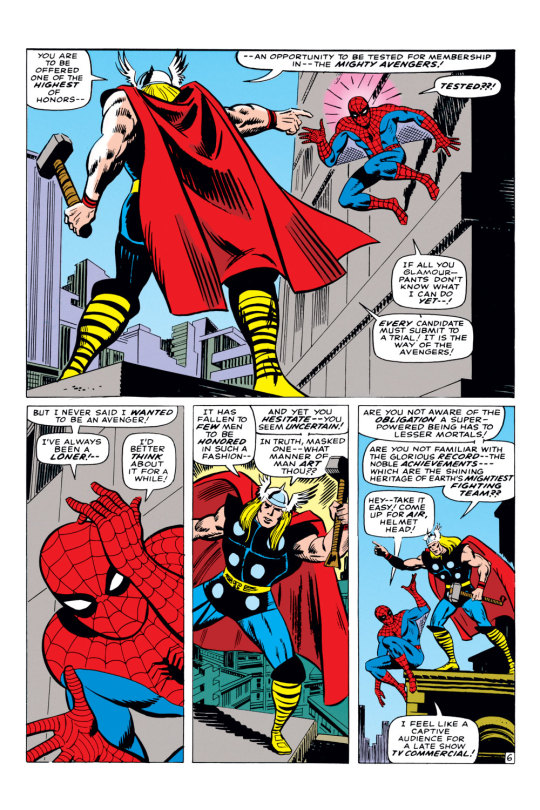

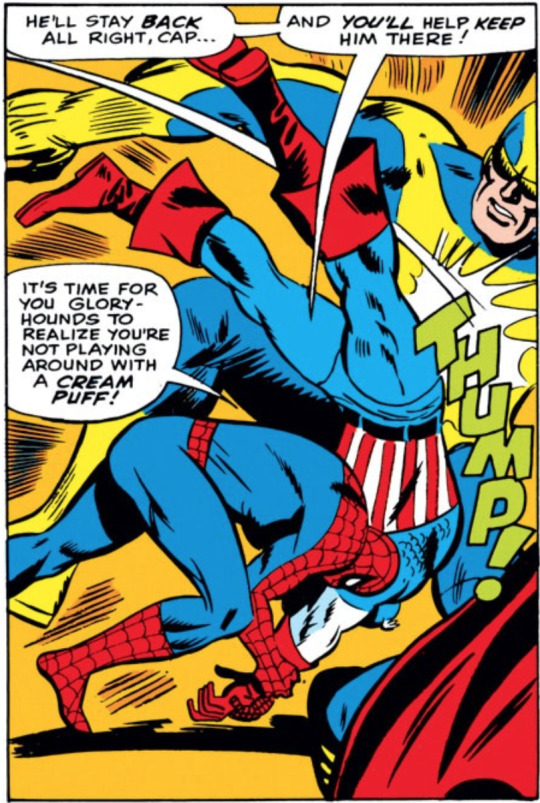
So there was already a precedent in the comics for Spidey to not be dazzled by famous A-list heroes, meaning it’d be totally believable in the context of the MCU. Indeed this was likely part of the point of the character. Just as being Spider-Man didn’t improve his outsider status within the high school hierarchy so too was he an outsider among his super hero peers. The nerd to the Avengers jocks if you will.
But what of those comic book sources that say otherwise? Surely ASM #1, ASM Annual #3 and JMS’ run on Amazing Spider-Man corroborate the MCU’s take upon the character.
Yes and no, let’s tackle them one by one.
In ASM #1 it was made explicit that Peter wanted to join the F4 for purely practical reasons. His family needed money so he hoped the F4 could provide and income. When he learned otherwise he departed as quickly as he’d arrived.


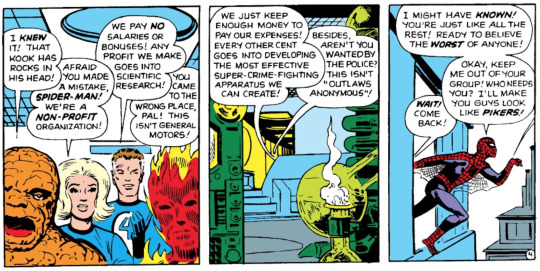
In ASM Annual #3 Peter was far from eager to join the Avengers and was equally unimpressed with them as a group.

He actively sabotaged his own chances to join at the issue’s conclusion.
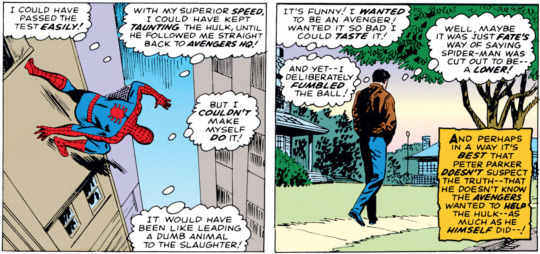
As for Straczynski’s run…sigh…strap in.
At face value this run does indeed seem to support the MCU’s rendition of Spidey. However, the support it offers falls apart due to two factors.
The first is that, well…Peter and Tony’s relationship was pretty nonsensical.
I’m no Iron Man expert so I do not know how old the character would be roughly. From my impressions of the character though circa 2006 he wasn’t even in his 40s yet. Peter by contrast was 30 years old when you do the math. Unlike Tony he’d had several very serious romantic relationships and was back then happily married (barring a brief trial separation). He and his wife had lost a child and even believed one another dead at one point or another. Peter at the time was also working as a teacher to teenagers where he was clearly framed as their elder authority figure.
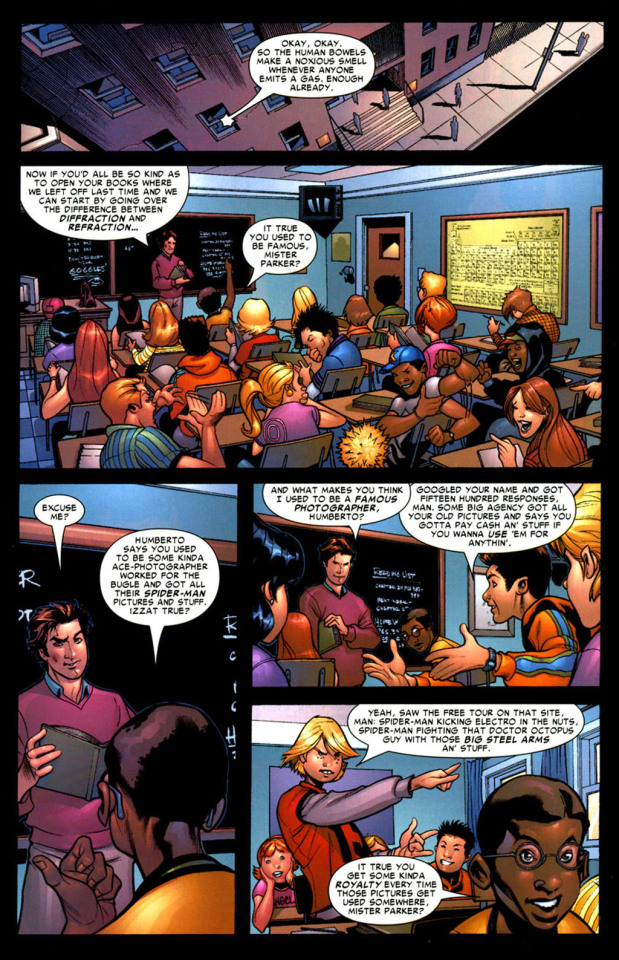
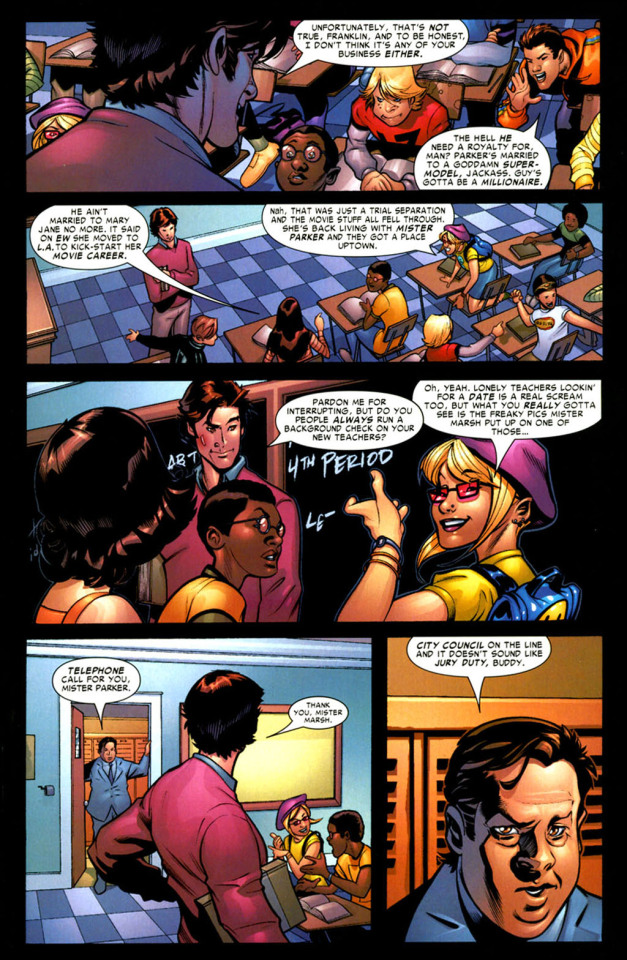
What I’m saying is that Peter was if anything more emotionally mature than Tony at this time. Or at least he was mature to the point where he was not going to view Tony as his father figure given the minor age discrepancy.
The relationship was clearly engineered with the pre-determined endgame in mind. That endgame being the ‘Civil War’ storyline wherein Peter would unmask upon Tony’s request and subsequently become a fugitive in defiance of Tony’s unethical practices. The latter would entail Tony threatening Peter and the pair coming to blows.
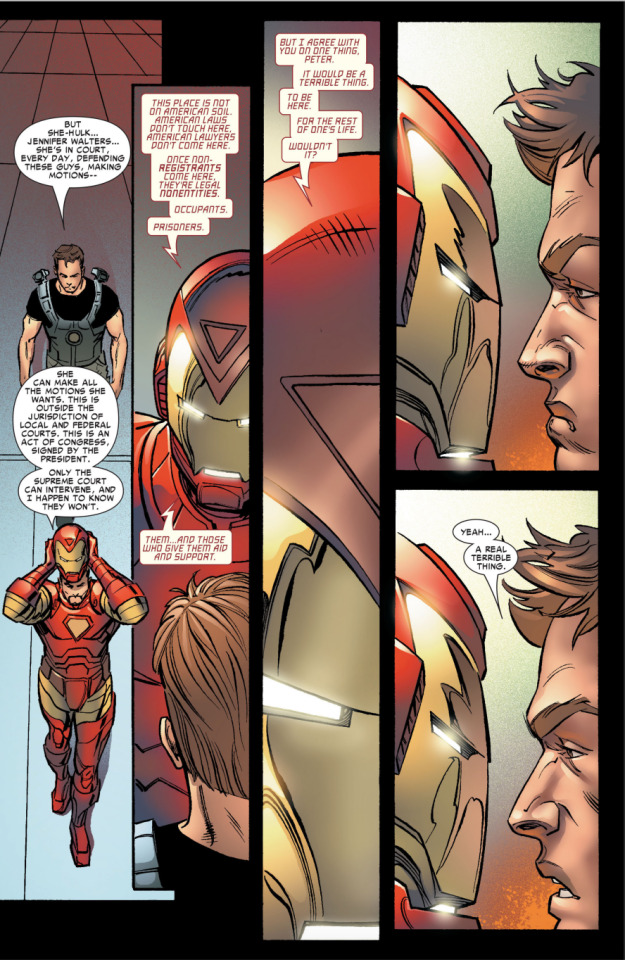

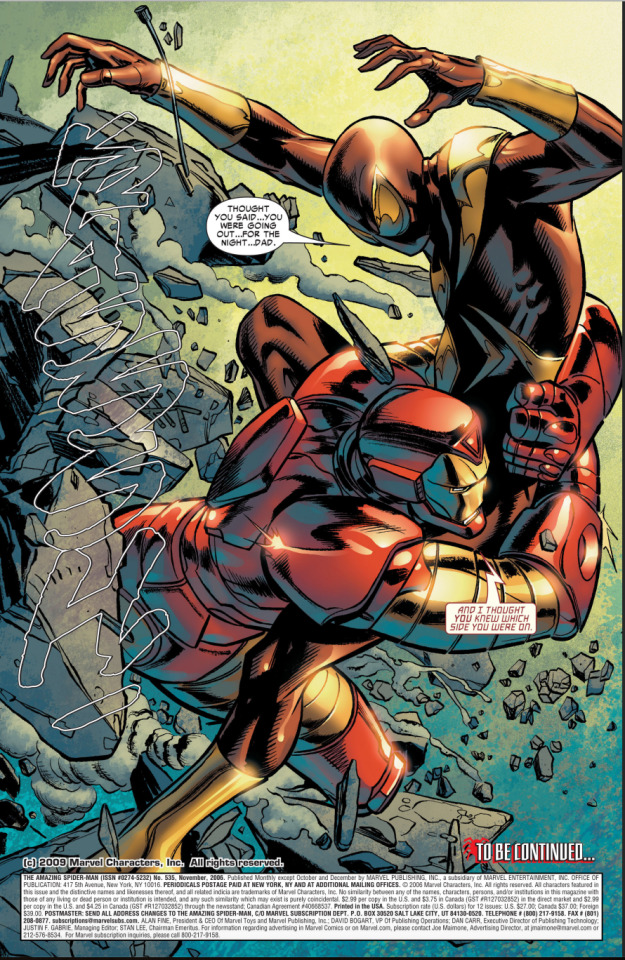
This brings me to the second factor. The totality of Peter/Tony’s relationship was designed to be a testament to how it was ultimately a bad thing.
Tony wasn’t the man Peter believed him to be.
Tony didn’t have Peter’s best interests at heart.
Tony was willing to spy, threaten and even attack Peter.
And along the way Peter and his family lost their home and the safety of Peter’s anonymity. The end result was Peter’s life becoming a shell of it’s former self, with his loved ones in serious danger. In fact you could view his fugitive status as a way to recreate the ‘good old days’ when Spider-Man was feared and hated by the public and authorities.
Had Peter retained his independence rather than surrendering any part of it to his ‘father figure’ Tony Stark, much of this could’ve been avoided. If nothing else Peter might’ve been able to unmask privately rather than publicly.
Whilst the MCU addresses the first factor via de-aging Peter, it has no answer for the second. It borrowed from the JMS run superficially and ditched the greater subtext regarding how Peter shouldn’t have formed a relationship with Tony.
I’d like to conclude by addressing the most obvious counterpoint to everything I’ve said.
If Spider-Man were more comic faithful wouldn’t it undermine the entire point of him being in the MCU? The appeal of the concept was seeing Spider-Man interact with the wider MCU. From the audience’s POV seeing yet another Spidey flick confined to using Spider-Man exclusive elements might as well have been produced solely by Sony.
The problem with this argument though is that it doesn’t consider the myriad of possibilities available. Spidey could interact with the wider MCU and still be in character.
I’m no writer but off the top of my head:
Spidey could have defied the Sokovia Accords and thus been wanted by the authorities (a neat updating of his traditional ‘outlaw’ status), consequently coming into conflict with Iron Man
Spidey might have still dueled the Vulture and interacted with Tony as he did in ‘Spider-Man: Homecoming’. However, instead of gradually realizing he should be a ‘friendly neighborhood’ hero, he could call Tony out for ignoring small scale crime which indirectly ‘created’ the Vulture in the first place
Following ‘Avengers: Endgame’ the dissolution of the Avengers combined with the huge uptick in the population and displacement of citizens might’ve caused far more street crime that Peter would have to deal with. The remnants of H.Y.D.R.A. might’ve exploited this to gain a foothold upon which to rebuild.*** That might’ve warrant an appearance from more grounded heroes like Hawkeye or Ant-Man
An environment like this could’ve been exploited by Quentin Beck to frame Spider-Man, exploiting his already shaky public reputation and make himself look more appealing by contrast
Or Hell just do ‘Nothing Can Stop the Juggernaut’ but with the Hulk as Roger Stern planned to do in the first place
I’m sure many of you could suggest infinitely better ideas.
In conclusion, no matter how you slice it, there were better options than rendering Peter Parker Iron Man Junior instead of Spider-Man.
*Peter, as depicted in ‘Captain America: Civil War’ was clearly not well off financially, yet consequent depictions of Peter in the MCU have de-emphasized this to the point where you could argue they are very probably not working class anymore.
This makes sense internally as a billionaire Tony Stark has no reason to take Peter under his wing but allow him to still dumpster dive for equipment. Giving the boy at least some modest financial stability would be a logical step in building a relationship with him and giving him more time and energy to put into his scientific and heroic pursuits.
Whilst I don’t exactly agree with everything said here, this post dives into the subject more deeply.
**And even if it was, if the context demands Peter be rendered so unrecognizable then maybe it was just creatively reductive to integrate him into the MCU the first place.
***They have after all had connections to organized crime in the comics.
#MCU#marvel cinematic universe#Tony Stark#Anthony Stark#Iron Man#Steve Rogers#captain america: civil war#Spider-Man: Far From Home#spider-man: homecoming#Captain America#pokemon#Power Rangers#Teenage Mutant Ninja Turtles#Transformers#Tom Holland#Avengers#The Avengers
126 notes
·
View notes
Text
Introduction to the Stars AU: A General Overview/FAQ Post
What is the Stars AU?
Basically, the Stars AU started out as a SPOP AU where Bow and Glimmer accidentally conceive a child shortly after the portal incident. A few months and countless conversations & roleplay sessions later, it’s become a full-fledged AU with separate timelines, a TON of OCs, and plans to write fanfic/commission fan art in the future.
Since we’ve come up with so much stuff for this AU, we decided to make a side blog for it!
@darkmasterofcupcakes and myself (@roses-renegade) are the AU’s co-creators.
Wait, this AU has separate timelines?
Yep! The original version of this AU had Glimmer and Bow conceiving their daughter Andromeda not too long after the portal incident. We have worked on this version of the AU for a while. Around the time that season 5 of SPOP came out, we made an alternate version of the Stars AU (or, an AU of the AU) that was more canon compliant- in this version, Andromeda is conceived shortly after the SPOP finale. We decided to keep both versions of the Stars AU (we usually refer to them as the “canon divergent” and “canon compliant” timelines). For the most part, both versions of the Stars AU have the same story/OCs, but the timelines are just a bit different (since we based the timing of a LOT of the events of the AU on how old Andromeda would be when they occurred).
To give you even MORE of a headache (haha), we also have come up with a “dark timeline” version of the Stars AU, BUT more on that later...
Okay, gotcha. What is the Stars AU about?
The most basic answer to this question is “the events of Bow and Glimmer’s life after the portal incident.”
This AU tackles (among other things) Glimmer and Bow’s season 4 storylines, the development of their romantic relationship, their journey to parenthood, their lives (and, really, everyone else’s lives) after the war, and, eventually, the lives of their children.
Why is it called the Stars AU?
Back when we were first brainstorming names for Andromeda, we came up with this idea that Bow and Glimmer would give all of their kids star-related names. My (@roses-renegade) reasoning for this was that it was sort of a symbolic thing. Glimmer and Bow’s children are going to be growing up in this new era of peace on Etheria. I wanted their names to kind of “reflect” this new era, and one of the most noticeable physical aspects of post-war Etheria is that the stars have returned now that Etheria is out of Despondos and a part of the larger universe once again.
So, yeah. Glimmer and Bow’s kids will get to grow up in this new peaceful world under the stars. Hence, “the Stars AU.”
Okay, so... tell me more about Andromeda, since she basically got this whole AU started.
Princess Andromeda “Andi” of Bright Moon is the daughter of Queen Glimmer of Bright Moon and Bow, Master Archer of the Rebellion (and later the King of Bright Moon). After the portal incident and the “death” of Queen Angella of Bright Moon, Bow and Glimmer ended up getting closer and eventually confessed their feelings to each other. After exploring their feelings and relationship, they ended up having sex one night. They then decided to "take things slow” while dating. Not too long after her coronation, Glimmer found out from Shadow Weaver that she was pregnant. She and Bow decided to keep the baby. A lot of our initial work on this AU was about how Glimmer’s pregnancy affected her season 4 storyline and character arc, as well as her relationship with the other SPOP characters. Around the end of her second trimester/beginning of her third trimester, Glimmer activated the Heart of Etheria (something that both Bow and Adora were against). This caused a massive rift between Glimmer and Bow. However, Bow still tried (and failed) to save Glimmer from being abducted by Horde Prime. Glimmer became a prisoner on the Velvet Glove, and eventually gave birth prematurely on the ship (partially from the immense amount of stress she was under, and partially because the baby may have been affected by Glimmer’s activation of the Heart of Etheria). Catra, who Glimmer had formed an uneasy alliance with while on the ship, ended up helping her deliver the baby. Catra then helped Glimmer (and Andromeda) escape, and the mother-daughter pair were rescued from space by Bow and taken aboard Mara’s ship. Glimmer and Bow soon made up, and Andromeda was put in an incubator (created by Entrapta) on the ship. After that, the majority of what occurred in the canon version of season 5 happened- the gang had some space adventures, eventually got back to Etheria, and Horde Prime was defeated. After Adora and Catra saved Etheria, Glimmer and Bow shifted their focus to making sure that their new little family was okay. Glimmer spent a few days recovering in the infirmary at Castle Bright Moon with Bow by her side. Andromeda, on the other hand, spent a month or so in the infirmary before eventually being “cleared” to go (much to Glimmer and Bow’s immense relief).
Dang, that’s a lot. And that’s only the beginning?
Yep! After developing this “main storyline” of the AU, we shifted our focus to Glimmer and Bow’s life after the SPOP finale. In our AU, a lot happens after SPOP’s “happily ever after”...
What are some of the things that happen afterwards?
Oh, you know... rebuilding Etheria... the BFS going on their little “return magic to the universe” road trips... Glimmer and Bow navigating parenthood... Angella coming back from the dead...
Angella’s back?!
YEP. We thought she (and Micah) deserved better, so... yeah. We brought her back. No regrets. (Glimmer is still queen, though.)
What are the main SPOP ships involved in this AU?
Glimmer/Bow
Catra/Adora
Sea Hawk/Mermista
Scorpia/Perfuma/Entrapta (poly trio)
Micah/Angella
George/Lance
How many OCs does this AU have so far?
Okay, get ready... *deep breath*:
4 Glimbow children
1 Catradora child
3 Seamista children
8 Scorpia/Perfuma/Entrapta children
1 Micangella child
1 Castaliet child
... a few OCs for some of the “next gen kids” to fall in love with...
Tell me more about these “next gen kids”...
All in good time. (I’m planning to write some sort of “masterpost” for all of the OCs eventually.)
Okay then. Tell me about this “dark timeline” you mentioned earlier... because that sounded ominous and now I can’t stop thinking about it in the back of my head...
Basically, Glimmer’s final two children were twins, and in the “dark timeline” she dies shortly after childbirth, after a very difficult and stressful pregnancy. The “dark timeline” version of the Stars AU follows the impact of Glimmer’s death on everybody. You know, fun stuff.
Note: Glimmer only dies in the “dark timeline.” She stays alive in the main timeline/version of this AU, which is what we’ll be posting about here 99% of the time anyway.
Wow. You really like to make the characters suffer, huh?
I mean, sometimes, yeah... not always, though! We promise!
Is there fanfiction of this AU that I can read?
Not yet! We’re working on that though...
What kind of things will you be posting on this blog?
Basically anything and everything about the Stars AU... character designs, headcanons, random lore about the Stars AU, fanfic/fan art (eventually), etc. We wanted a place to put everything pertaining to this AU!
Can I submit questions/prompts/whatever about this AU and its characters?
Yes, always!! We would love to provide you with lore. :)
If I ever feel inclined to draw one of the Stars AU OCs, can I?
Yeah sure! Just make sure you tag us. :)
What’s the tag you’ll be using for this AU?
We will be tagging our posts with #SPOP Stars AU if you want to follow that tag. :)
#SPOP Stars AU#faq#faq post#overview#spop#she ra#she ra and the princesses of power#tv: she ra#spop netflix#alternate universe#au#spop au#oc#spop oc#fankids#spop fankids#spop fandom#fanfic#fan art#headcanons#glimbow#catradora#seamista#perfuma#scorpia#entrapta#micangella#castaliet#bright moon#etheria
20 notes
·
View notes
Text
From Bridgerton to Hamilton: A History of Color-Conscious Casting in Period Drama
https://ift.tt/2IQI6Ak
Note: This Bridgerton article contains no book or series plot spoilers.
Bridgerton is a unique mix of Shonda Rhimes’ dedication to Black representation on American television and the British period drama tradition. White critics may dismiss this trend as unnecessary “pandering” to Black and POC viewers, but the number of productions designed around reforming all white-casting has increased over the past 10 years—and has only added to the success of the genre. The number one reason driving demand for diverse period dramas is from Black and POC fans of the genre. The impact of seeing an actor that looks like you can’t be measured in ratings or clicks online. Despite facing years of content and fandom overtly or covertly claiming that the universal themes in period dramas are not “for us”; the tide is starting to turn as fans use social media and the power of ratings to ask for more representation.
A quick overview of recent Regency England-set productions leaves much to be desired. Although the 2018 Amazon Prime/ITV miniseries and the 2005 movie adaptations of Vanity Fair left in West Indian and Jewish heiress Miss Schwarz, she is one of many supporting characters. PBS/ITV’s Sanditon, on the one hand, improved representation by prominently featuring Georgiana Lambe. However, her story was a huge disappointment to Black and POC fans who expected her plotline to end happily or at least have her conflicts resolved.
There have been three paths traditionally towards increasing diversity in period dramas: 1) blind casting (also called racebending), where Black and POC actors play traditionally white characters adding original Black characters to existing fictional works, and 2) Own Voices, where Black and POC writers share their own stories. These two are not mutually exclusive, but, in the world of British period drama, the former is more frequently used, as the bedrock of the genre is adapting existing novels and plays by white authors.
The theoretical framework for inclusive casting begins in the world of staging period drama at the theater. In Shakespeare’s day, men played women’s roles as women were not allowed to appear on stage. The genre evolved in later centuries to allow women to appear on stage, but the tradition of having actors who didn’t match the original descriptions remained. This is even true of his history plays where real women royalty were characters. Ira Aldridge in the 1840s was the first Black actor in Britain to play traditionally white roles on stage. Later on, in the 19th century, several stage adaptations of Jane Austen’s works had all-women casts.
Fast forward to 2015, when Lin-Manuel Miranda in Hamilton redefined what it meant to cast inclusively in modern period dramas by using actors descended from slavery and colonialism to play the Founding Fathers. Every aspect of the musical was designed to reframe the existing narrative of early American history. The costume design also reflected the identities of the actor by featuring braids, locs, and textured hairstyles over 18th century white hairstyles. Rap lyrics conveyed to the audience the names, dates, and other descriptions of the Revolutionary War. The old adage that someone must “look the part” to play a biographical role was thrown out the window.
Hamilton proved that many of the old excuses used to sideline diverse period dramas no longer held to be true. Millions of white people listened to the cast album, brought tickets, or streamed the movie on Disney+. UK theater patrons flocked to the West End cast of Hamilton, as well, before the pandemic. Memes, parodies, and more on social media proved that white audiences can conceptualize historical figures as fictional characters while also knowing the real figures looked and acted quite differently. Fans of the show pushed Ron Chernow’s biography back onto the bestseller lists as they wanted to read what really happened.
The first clear impact the show had on the genre of British period drama comes from a mystery. Daisy Coulam, Grantchester’s head screenwriter, cited reading an interview with Miranda as the inspiration behind the exit plotline for James Norton’s character Sidney Chambers. UK crime dramas For those unfamiliar with the series, Grantchester is a mystery procedural based on a series of books about a 1950s crime-solving Anglican vicar by James Runcie. Norton’s exit plotline in Season 4 generated an original to the show character named Violet who was the daughter of a visiting African-American preacher. Violet was an original character who forced the audience to consider that the US civil rights movement indeed reached their treasured vision of the lily-white British countryside. Coulam already laid the groundwork for Violet in earlier seasons by abandoning large sections of the original novel timeline and but keeping the case of the week focused on addressing 1950’s social issues. Fans heavily criticized Coulam’s writing for style and pacing, but her imagination clearly indicates that Hamilton’s proven formula for disrupting established historical aesthetics can just as easily be applied to fictional depictions of the UK’s past as blind casting a biography-based series or depicting real figures of Black British history.
Other period dramas released in recent years share traces of Hamilton’s impact but in a more thematic and less direct different way. Some shows turned real Black British figures into fictional characters. Lina (Stephanie Levi-John) and Oviedo (Aaron Cobham) on The Spanish Princess are composites of Catherine of Aragon’s servants and several famous Black Tudors. Catherine “Kitty” Despard (Kerri McClean) in Poldark Season 5 was a forgotten Black British figure added in to expand the world outlined in the novels. Victoria featured Ira Aldridge (Ashley Zhangazha) mentioned earlier, plus spotlighted the Queen’s adopted daughter Sarah-Forbes Bonetta and Cuffay (C.J. Beckford) as the leader of the proto-socialist Chartists. Lucille Anderson (Leonie Elliott) on Call the Midwife was not mentioned in the original memoirs, but she was added to represent the Caribbean nurses from the Windrush Generation of UK immigrants.
Racebent casting also increased. Dev Patel’s role as the title character in the movie The Personal History of David Copperfield proved that Dickens adaptations could indeed include POC casts without changing the fundamental plot and message. PBS/BBC’s Les Miserables miniseries also extended the Broadway tradition of casting Black actors in traditionally white coded classic literature characters. Hulu’s The Great featured Sacha Dhawan and several Black actors as Russian nobility, politicians, and courtiers.
All of these series, however, carefully attempted to stay grounded in recreating the original source material or invested in faithfully replicating the era they were set in. Bridgerton radically expands upon Hamilton’s formula by divorcing inclusive casting from any desire to accurately recreate historical events, eras, or figures. Romance, fantasy, and social/familial drama are universal themes that don’t depend on having a white-dominant vision of society. Quinn’s original novel series sparingly referred to historical events during the Regency Era. Her focus was on creating a world where the most important events were balls and weddings. More Dukes and other holders of inherited titles exist in her vision of the Ton (the most elite members of Regency society) than in reality. Historians would likely dispute her characterization of the elite social season as well. Characters’ internal dialogue is in modern English peppered with regional accents and slang. They rarely lampshade or criticize the way of society beyond their romantic desires and family obligations. Readers see the physical intimacy on the page Austen never mentioned. This literary environment is ripe for inclusive casting on screen.
The most critical flip in characterization is Simon, Duke of Hastings (Regé-Jean Page). His character is the romantic hero of the first book in the series The Duke and I and is the character that set fan expectations high for future novels. Simon having visibly African features and yet being an object of desire is incredibly subversive in a genre where white beauty standards dominate hetero and homosexual fiction.
Lady Danbury (Adjoa Andoh), Simon’s godmother, is an elder stateswoman and a twist on the battle-ax aunt trope popular in period dramas. She isn’t as caustic and insulting as some other famous widows and spinsters but she commands authority and a mansion filled with people to perform all the hard labor. Lady Danbury is even implied to be slightly higher in status than her white counterparts with children of marrying age Lady Violet Bridgerton (Ruth Gemmell) and Lady Portia Featherington (Polly Walker).
Queen Charlotte (Golda Rosheuve) being played by a biracial woman is actually a subtle Easter Egg to existing history debates. Many have debated if her portraits were airbrushed to disguise African features. A few years ago, a documentary established her African ancestry is via the Portuguese royals. All of her scenes involve petting her Pomeranian, demanding to know the latest gossip, and manipulating the gentry into doing her bidding.
The miniseries doesn’t end the racial diversity with those at the highest social rank or even at the lower orders of domestic servants. Marina Thompson (Ruby Barker) is a cousin of the Featheringtons and represents the “poor relation” character popular in stories based on the British gentry. A Black modiste (dressmaker) trained in French fashion makes all of the dresses the characters wear. Will Mondrich (Martins Imhangbe) is a boxer, likely a reference to former slave turned bare-knuckle boxer Bill Richmond. Alongside the characters with plot lines viewers follow, there is a conscious effort to hire Black and POC extras to fill in crowd scenes at balls, park scenes, and other public events. The viewer sees people who look like themselves in every class level of society and can feel like they too can become part of their world.
Read more
TV
How Bridgerton Can Avoid Outlander’s Mistakes
By Amanda-Rae Prescott
Books
Bridgerton: Cast Announced for Shonda Rhimes Netflix Series
By Alec Bojalad
Attire is a critical part of upholding the fantasy and cultural diversity Bridgerton and also in communicating to the audience the series isn’t your aunt’s neutral tone Austen adaptation. Marina and Lady Danbury would never be caught dead in a plain white muslin frock. All of the popular Regency hairstyles for women have been modified and reworked for natural textured hair, braids, and locs. Some of the Black male extras even have modern African hairstyles left in tact. The only Black characters who wear the traditional white wigs are older men or servants in full formal uniform. Queen Charlotte’s Black courtiers and servants wear a mixture of extravagant 1770s and 1780s attire and Regency court wear to create a physical separation between them and the rest of the ensemble cast. These style decisions are right out of the playbook of Still Star-Crossed, Shondaland’s first foray into period drama. Although that series took place in 1300’s Italy, the priority was on blending fantasy and Black fashion aesthetics over catering to white costume enthusiasts and reenactors.
In the world of Bridgerton, slavery and colonialism are directly or indirectly referenced exceedingly sparingly. One reference is to Lord Dunmore’s army of emancipated and runaway slaves during the Revolutionary War proclamation. (Hercules Mulligan’s Black troops referenced in “Stay Alive” is the Patriot equivalent of Dunmore’s forces). These sparing hints make it clear to the viewers that class, family, and personal family drama is the root cause of joy and pain in this series.
Since Bridgerton is completely ignoring the physical descriptions of the characters in many cases, the set design carries the bulk of the attention to historical detail. The series hired Dr. Hannah Greig as a historical advisor to ensure these details were as close to 1813 as possible. Greig has previously acted as a consultant to the Sanditon, Poldark, and The Duchess cast and crew is likely where the Easter Eggs in character references come from. Lavish mansions and castles and the more humble spaces ground the fantastical plot details in historical reality. Several previous period dramas have recreated the Vauxhall Pleasure Gardens, but these scenes in the miniseries are elevated to the next level thanks to Netflix’s budget.
Read more
TV
Noughts + Crosses: Why You Should Watch This Afrofuturist Alternate History Romance
By Amanda-Rae Prescott
TV
World on Fire Returns People of Color to the Dunkirk Narrative
By Amanda-Rae Prescott
The success of Bridgerton applying color-conscious casting to a fantasy/romance series has implications far beyond potential future seasons. Studios especially those in the UK have been hesitant to utilize recent historical romance books for screen adaptations. Modern historical fiction by Black and POC authors (called Own Voices fiction) which is crucial in the fight for increased representation. Novelists such as Beverly Jenkins, Courtney Milan, and Alyssa Cole have written romances set in the Regency and other eras of American and British History that can easily be transformed into movies and miniseries. Some of these novels recreate existing history while others lean into escapist fantasy. The ultimate goal in period drama representation is for Black and POC creatives to tell their own stories covering all the ranges of emotion, not just historical trauma.
cnx.cmd.push(function() { cnx({ playerId: "106e33c0-3911-473c-b599-b1426db57530", }).render("0270c398a82f44f49c23c16122516796"); });
Critics can keep attacking period dramas for being “too woke” (a term that was stolen from anti-racism activists) for remembering that white people aren’t the only inhabitants of the British Isles and America, but series like Bridgerton are here to stay. Black and POC viewers and readers of period drama and romance fiction always existed, and viewership will only grow if more inclusive period romance projects are greenlit in the future.
The post From Bridgerton to Hamilton: A History of Color-Conscious Casting in Period Drama appeared first on Den of Geek.
from Den of Geek https://ift.tt/3mjLv8v
10 notes
·
View notes
Text
In your first blog post of the semester, explore the tug of war in cinema between the “classical” in cinematic storytelling and those who try to subvert it. Drawing upon examples from the films we have studied thus far, define what “classical” cinematic storytelling is and demonstrate how it functioned in an earlier period of film history, as well as its continuing legacy. Where do you see evidence of the “classical” today? Then, consider how filmmakers working in subversive modes challenge the dominance of classicism, either through subtle, indirect means or by full-on assaults. What kinds of classical storytelling approaches do they reject? How do they do that? What changes in form and content defy the classical? The films we’ve seen will help, as will the various sources you’ve been given for study. Use examples from the films we have studied, and draw upon others that you think are relevant.
Cinema is often thought to be the highest form of art, since it combines storytelling, acting, and music all in one glorious attempt to do something that feels simple, but as we find in exploring the history of film, not so much: the art of telling a story. There are many different ways to approach conveying information in a visual manner, and although the direct method might seem to be the easiest, we find that directors can get away with telling their story in the most imaginative ways possible. From the use of flashbacks, forwards and sometimes even sideways, the viewer is taken on a journey through which they are given the clues needed to piece the entire story together on their own. Directors use these various methods of storytelling often to drive home a point, possibly about how the main protagonist sees the world, or how memories are often skewed through the lenses of either emotion or possible mental illness. Telling a story on screen involves a lot of elements that were cemented as ‘classical’ during the early days of Hollywood, and many directors still utilize these storytelling techniques to this day. Others have forged their own path in defying the classical model of film, whether by altering how the progression of the story is conveyed to the viewers, or simply casting away the norms all together.
As Hollywood began to come into its own in the early 1900′s, many of the silent films that were made followed a recipe for getting its message across to the audience watching the screen. It all started off with Alice Ida Antoinette Guy-Blaché, credited with creating the first directed narrative. Up until that point, most movies that were being made were what we would call by today’s standards ‘b-roll footage’. Images of trains coming into a station, workers leaving factories for the day, and horses running were what was most often seen in early day Nickelodeon’s. Alice was the first to use a three stage story arc when she directed her first short film Suspense. Illustrating the rising action with the mother seeing the robber in the alley below her bedroom window, the climax of the husband bringing the police home with him in time to save his wife and child, and the resolution when the family is safely reunited, and the would-be robber is taken away by the policeman. Using film to not only illustrate a story but take the audience on a journey that tugs at their emotions and leaves them sitting on the edge of their seat was not something that had been done before.

Alice paved the foundation for classical storytelling in early cinema, which was firmly linear for several decades once the Motion Picture Production Code began being firmly enforced by the Catholic Church. Since villainy was to be punished and goodness was to be rewarded in the rules, many of the films that came out between 1934 and 1965 followed the same formula. The man ended up with the woman he was in love with, and they were able to get through whatever troubles sprung up in their way throughout the movie.
We see this in Ninotchka, where a Soviet agent is tempted by the love of a Frenchman named Leon and driven to betray the Communist regime of her country in order to pursue it. Nothing can come between them, not even when she returns to Russia and Leon is barred from visiting her. Even when his romantic letters to her are censored by the Communists, the hope in the story is not completely lost.
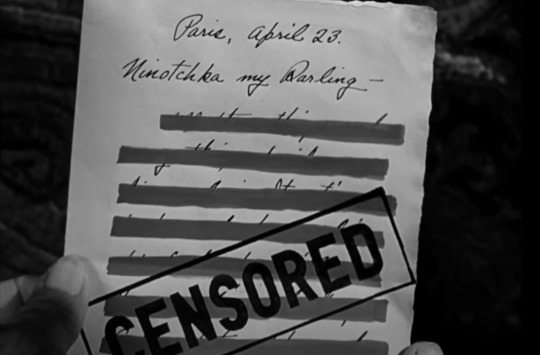
Through all obstacles, Ninotchka and Leon are happily in each other’s arms by the end of the movie. You would think that the Communist regime of 1930’s Russia would easily get in the way of two lovers, but in the glittering bauble of Hollywood, there was seemingly nothing that could prevent the linear storytelling model from rewarding the deeds of the good-doers. Not even a strong-willed, stony Communist woman can ignore the temptation of the love of a man, or the freedom that would come with fleeing her home land. Betraying their home country in the name of love isn’t something many people have to struggle with. Yet we see Ninotchka’s transformation unfold on screen in an almost eerie fashion, under Leon’s influence. At the same time, she doesn’t lose the core of who she is even after falling in love. We see this when she gets quite drunk while out with Leon, and she’s caught promoting Marxist ideals inside the women’s bathroom. At the end of the day, Leon still loves Ninotchka for who she is, Communist and all.
However, some modern films still manage to follow a linear manner of storytelling, even if they are groundbreaking via other means. Take Donnie Darko for instance. Filled with strange imagery that represents Donnie’s visions of how to save the tangent universe from certain destruction, it can feel like a film that displaces the viewer. However, if you have watched it a few times, you can see that the strange, obscure events in the story are still told in the order as they happen. From the night that Frank appears to Donnie and warns him of the world’s impending doom that is to come in twenty-eight days, a countdown begins from that point onward. Even when Donnie is experiencing visions of his school flooded with water, or being egged on by Frank to burn down the house of a local celebrity, we see each day pass by in order until the film’s ending. Images of water and fire are placed against Donnie’s relatively normal, everyday life as a high school boy in a stark, brilliantly vivid contrast.

While Richard Kelly could have chosen to present the film’s events out of order or utilize flash backs and forwards to communicate his vision, his unique and bizarre story was easier to understand since it was told linearly. Kelly still manages to subvert the norm by creating his own science behind what was happening to Donnie, between the tangent universe, living receiver and the manipulated dead and living. Kelly also did not feel the need to show the audience every last little detail of Donnie’s abilities and experiences, feeling that ‘less was more’ in his interview in The Donnie Darko Book. Rather than showing Donnie levitating off of the ground and swinging the axe into the bronze statue of the school’s mascot, Kelly instead cuts to the scene where the disfigured piece of art is discovered by both the police and the principal.

Choosing to let the audience use their own imaginations to fill in the blanks allows the viewer to come up with their own creative ideas as to how events unfold, instead of being spoon fed them shot by shot. A cult classic, Donnie Darko still comes to mind all these years later whenever the topic of films that challenge the classical model through indirect and still wildly creative means.
Then there are directors which completely subvert the linear story model, turning it on its head and taking the audience through an unexpected, wild ride where they are never quite sure if they can trust what they are seeing on screen. Robert Eggers’ newest film The Lighthouse is a story that is difficult to grasp on the first viewing. Even in just aesthetic terms, Eggers goes against the norm in choosing the 4x3 aspect ratio for his movie, instead of the traditional widescreen. It brings us closer to the actors and their rapid descent into madness, giving off a sense of claustrophobia as the dread slowly builds on screen. The movie is shot in black and white instead of contemporary color film, which leads to our eyes having fewer things to be distracted by as we watch. It also adds to the otherworldly, nightmarish atmosphere of the movie, and gives the director more opportunities to use the lighting on set to convey the deeper messages that are found in The Lighthouse.
Eggers has a way of giving the viewer a creeping sense of foreboding without showing anything scary at all. The opening shot of The Lighthouse begins with a large ship cutting through dark and stormy waters, and then we see our two main characters shot from behind with the lighthouse towering above their heads, accompanied by tense music. There’s something to be feared in these beginning moments, even if the viewer can’t quite put their finger on just what it is yet.
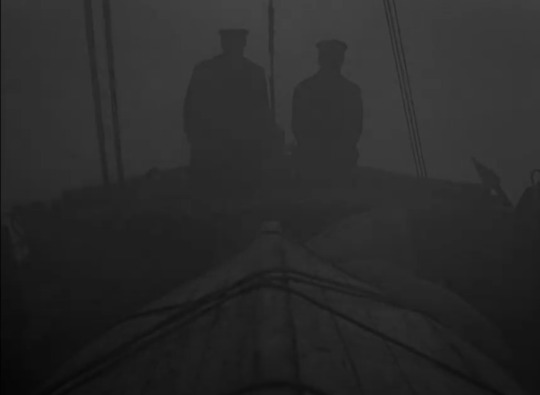
The audience is not sure if the main protagonist, Winslow, is a reliable character or not. There comes a point in the movie where everything we are led to believe up to that point is turned onto its head, and from that moment forward the viewer can not tell if Winslow is of sound mind or not.
The night before their shift is supposed to end and the ferry will come to take them away from the lighthouse and the island, Winslow finally breaks his sobriety and he gets quite drunk with Wake. During what we think is the next day (any attention paid to how much time has passed feeling scrambled by this point), Wake informs Winslow that the rot has gotten to their salted fish. Winslow replies that they had only missed the ferry by a day, and there is no need to ration their food. Wake replies that it had been weeks since they had missed the ferry that was supposed to take them home, not a single day. Wake also says that he had been telling Winslow to ration their food for the past few weeks, to which Winslow does not believe him. Wake comments that he does not want to be stuck at his post with a lunatic, and bids Winslow to go with him to dig up their extra rations, which turn out to be comprised of nothing but more alcohol. Wake makes a few slip-ups of his own in recounting his sailor days with Winslow, having two different versions of how he lost his leg, or whether or not he had been married and had a family. Between Wake’s lying and Winslow’s seemingly unstable mental state, there is no reliable narrator to trust throughout the film.
From then onward, the film spirals into such madness that the viewer can only hope to retain their wits enough to follow what is unfolding on the screen and attempt to piece together what is real and what is not in their own mind. We no longer have any baseline for reality to cling to at this point, between the excessive drinking on screen, and the characters’ untrustworthy narrations. Eggers gives us only the briefest, pin-prick sized moments of normalcy, such as Wake and Winslow catching lobsters for their dinner, or Winslow attending to his various duties on the small outcrop of land that the lighthouse sits on. Even then it is difficult to pay close attention to these tiny seconds of peace after having been put through a dizzying whirlwind of stimulus only seconds prior, with visions of sirens washed up on the beach, or tentacles belonging to some great, terrible beast sliding across the top floor of the lighthouse.


The linear model of storytelling that was cemented in early Hollywood is classical for good reason. The early directors and screenwriters of that era paved the foundation that modern day films still utilize nearly a hundred years later, setting a standard that directors can either utilize, or subvert entirely. It is safe to say that there is no limit on creativity and ingenuity, no matter how the director may choose to tell their story on screen. Whether they follow the classical model, subvert it entirely or land in some sort of middle ground, we as the audience are given plenty of artistic content to work with and ponder about regardless of what they choose.
6 notes
·
View notes
Text
Even though I am not mad at this ending and think some aspects of it were nice, there is still a few things that I actually think were... not good. I am going to talk about what I think was right then explain what I think was wrong (I defend them in my last post, that doesn't mean agree with everything they did).
Like I said in my other posts, I don't think the writers are ill intentioned but just sloppy, and a little bit clueless. Like, I don't think they actually sat down and said "ah ah lets get people mad 😈". We can't brush away the fact they have really been trying to do something right, it's easy to judge on a single episode but the show as a whole has been very progressive and meaningful in terms of representation, advocating for equality, and in terms of respecting the fandom and especially fanwork. They have been on our side all along, writers and cast, so, no, I don't think they actually meant to hurt their audience.
I am struggling to formulate my point, it'd be easier in my mother tongue, but I think we idealized their writing, so of course they can't meet our expectations in terms of quality. For starters, I have never thought Supernatural writers were excellent to begin with. They have done amazing things in terms of storytelling, but also, they did some really disappointing writing, it has been irregular in quality since a long time. So it's not a surprise that they don't meet expectations. But I sincerely hate the idea that they're accused of being willingly abject with the fans by disrespecting the characters, I am not excusing everything but I don't think they deserve such virulence.
They don't disrespect the characters, they've just never read them like the fans did. They failed to give them the perfect ending because they really did think this is the ending their characters needed. That doesn't mean they didn't give an ending that was decent it's just not the ending that meets the perception we have of the characters, it's the ending for the characters they wrote, not the ones we read.
We see characters that have been fighting for freedom and that fight against fate, we have seen their growth from a perspective the writers don't have. What the writers gave them is the end they where supposed to meet at the beginning. Dean deserves rest and to be at peace with himself, Sam deserves a normal life, they gave them that, 100%. It fits the characters they wrote, it gives them an end that ultimately suits them. There isn't an issue with that in itself - I know everyone in my timeline might disagree with that lol. Considering Dean has been fight his whole life, fighting for survival, fighting to please his father, fighting to fulfill Chuck's desires, in the end he just chose to not fight, to give up because for the first time in his life, it's okay, he can go, there is no battle he needs to fight anymore. Sam has been robbed from a life he wished for, a life he designed for himself that has been taken away because hunting called back to him, the writers gave him the ideal life he wanted, a wife, a kid, a house with a fence and he died of old age peacefully. I've seen people complain that it's back to square one because that was their initial destiny, but, in fact... this is ok. Castiel end his story by finding love, by standing for himself, and by sacrificing everything for the one person he loved the most. That is, in fact, in character. Their end was beautiful in itself.
Now the issue I have with that, is that the writers obviously lost grip on the meta aspect of their writing and failed to see their characters were going in a different direction than the one they wrote. They failed to see this wasn't their characters anymore, and failed to take into account our perspective. Which is ironic because they convinced Jensen that their ending was true to the audience's perspective. We've been reading into the fact Chuck was the writer loosing grasp on his story, that the story was handed to the fans because it belongs to them - I think it's right to read it like that, but I also think the writers are just clueless about that reading. We gave them much credit for this meta aspect but I don't actually think they were controlling it as much as think.
The issue I have with this ending, mostly, is what I think has always been their flaw, they struggle with construction and rythm, and struggle with making their point come across. They naively think they gave us treats, like the dog reference, the pie contestcontest, they integrated that sloppily to this episode.
I've seen people ask what the pie contest meant... It's an inside joke with the fandom. It's there to talk to us through the show, it's sloppy but the intention here is to say "here is a wink for the fandom that did such good job at imprinting the show in pop culture and had such fun turning the pie thing into an immortal meme, thank you, here's one last laugh for you" (I did laugh). I also think somehow to them it meant giving a return to normalcy to Dean, gave him a bit of naiveness back, to show that his heart was lighter due to the fact he solved his issues with self loathing, with baring all the responsibilities by himself, it shows him at peace. And that's one of the reason why I din't think they completely ignored his character development, they were bad at showing it though, because the rythm was bonkers. They didn't took the time to actually tell it, but Dean did solved his issues between ep 19 and ep 20. He DID found normalcy, peace of mind, self love, and relief, he didn't just found happiness in death, he welcomed death because he was happy with his life. And we see him go to heaven and be happy in heaven because he never thought he'd make it there. What the writers did wrong is that we read that Dean was at first seen as daddy's soldier and didn't want to go like this, he believed that was the end he deserved because he didn't think he worthed much. One perfect ending for Dean would have been to go, but older, not on his old man's unsolved case, and not so stupidly, after everything, being beaten by a rusty nail doesn't feel right, it feels rushed. But it's mundane, it's almost a normal way to go after all, there is no big epic fight, this is just life being a bitch, and for once it is not a celestial being or a undefeatable entity, it's just a plain normal boring nail. It means, this is a calm way to go, the stakes aren't high, it's like, the complete opposite if what he has had since series 1. I understand what the writers meant. This is giving Dean an ending that wasn't as stressful as all the others, for the first time it is not an apocalypse to stop, and so he looked at the situation and thought: "that's it, the world won't end if I go, I don't have any burden on my shoulders anymore, I can go". I doesn't work but I understand what they meant.
What they didn't realized also was the fact we have read the character as bisexual, that we consider him canonically bisexual, and that killing him sends a bad message. But they don't actually think he's bi, we believe they did but that is something that we have read, not something they actually wrote. So, yes they are really clueless about the message they sent here.
If they did, which I doubt, then Dean's happiness was with Castiel, and since he wasn't on earth, he could only go to heaven, hoping that Jack brought him back (which he did). But I doubt they did because if that was the case we would have had a reunion. I'll come to that later.
But first, Castiel. Castiel's arc ended with him finding the one thing that makes a human a human in this universe : love. The angelic sensebif love was devoid of actual feelings, either in a platonic way or romantically, the angels have been depicted as obedient, stone cold, practical. In Castiel's ending, all of that is gone. I think his end should have been different because he and we deserve more that yet another kill your gays, but it was in character for him to devote himself to love in a final act of irrational and deep care for humanity, for those he thinks about family and for this man he loves and lost his wings for.
As a final act of love for Dean and humanity, he shaped with Jack a heaven that gives people the freedom to choose they're own perfect heaven. He designed it perfectly so people in heaven have free will. He designed a heaven that was meant to give Dean a sense of completion and that gave him the happiness and freedom he deserved (noting that he was happy before he went there).
What they did wrong was not showing Jack bring him back, it was not actually telling how he designed heaven for humanity, because as far as I can see the point didn't came across. It was also not taking time to show that it is not heaven and death that gives dean happiness and relief, they should have said Dean was at peace before going there. And it was not reuniting them.
That was their biggest mistake in my opinion because we needed to see a response from Dean. I have read somewhere Jensen actually think the fact Dean didn't answer doesn't mean he doesn't feel the same. I think he did wanted to tell something, he did love him, no matter which way, he did love him, I saw it cristal clear because Jensen is actually a good actor and got that across not only in episode 18 but in the whole show. He wasn't always on board with the idea because he had his own perception of his character but he knows the audience saw something he didn't and eventually took that in account and you can actually see it in his acting. Maybe Misha convinced him, you know he on the other end has always been open to it. Anyway, Dean had stuff to say. I think the writer considered he already did, by calling Cas family, by saving him over and over, I can't be sure, but they apparently didn't think it was necessary to make him express what he had to express and that is why they make him say to Sam that the pain isn't gonna go away and that he can only move on.
But they needed to be together in the end. To counteract the kill your gays. We needed a end à la Song of Achilles, so the sacrifice they both did was actually worth it. Instead they reunited the brothers, again, unaware that they portrayed a toxic codependency all along, I absolutely don't think they ever saw their relationship like that. I think they thought it was emotional and cute, and beautiful. In a way it was, but in another way, we needed more for both if them than Sam waiting to die in order to ve with his brother again. They say "you can go now" as if the sole purpose of his life from that point was to die. They really were oblivious to the fact that makes Sam not actually living a live he actually enjoyed and got involved in, they may have make him laugh with his son and be a better father than his own ever was (I don't think he was teaching him to hunt, the tattoo just meant he's protected from possession) but the whole message is that "you've walked in this life by default, waiting to be able to join heaven, not because you chose to".
I don't think the writers have really thought through what they were actually saying because they didn't took enough time to show and tell what they actually meant. On one end they failed to grasp what they birthed prior to that, on the other hand they failed to make themselves clear about what they mean. We lose much of their intent because they don't master their rythm, and fail to check what is really coming across the screen.
I don't think they are disrespectful, I don't think they delivered a bad or inappropriate ending, and I don't think they were intentionally homophobic, I just think they didn't give us the most appropriate ending. In the end it still feels right to me because I understand what they did, the characters where in characters, and it was a beautiful goodbye to me, but I am not entirely happy with it because I think they missed the point because, precisely, they are too much in character. They shouldn't have given us in character, they should have given us change, evolution, growth, from what the characters have been until then, and they should have been more explicit, because the way we read them absolutely calls for that. By staying too close to what they think they wrote they couldn't possibly satisfy the audience.
Like as said in a previous post, they were also playing safe with destiel, and I think they made a mistake. But yet again, I wasn't even expecting the ship to be acknowledged at all, so to me what they did was unexpected and nice. A big lead character, not a secondary but a lead, from one of the most popular show in television is canonically gay, there's that! And actually, there isn't much big shows that can say as much. The actual norm is still very low despite more and more shows being inclusive, they actually did better than the norm. I know it's not enough, I mean, I too want representation, I am a bisexual woman, I know we need better, but sometimes we can just be grateful for the little steps people are taking. We may believe it's nothing but it is not, they've done something great, not ideal, but great. They have taken the step Sherlock wasn't willing to take, they took a step so little shows were willing to take. Accusing them of being intentionally homophobic is just plain disrespectful for the impact they've had on television considering representation in popular shows.
They just committed a mistake by staying true to Castiel's character and making him sacrifice and by not bringing him back. They had good intentions, but were clueless about the implications of what they did. They intended to be faithful to the characters they wrote, and missed to be faithful to the characters they actually created.
No it wasn't the ending that I think would have been great. But I don't think they completely failed to give a nice ending that really says goodbye and thank you. It just could have been better, it doesn't deserve all the backlash I'm witnessing here. It deserves criticism, and it deserves for some of its issues to be addressed, but also, some people need to take a huge chill pill because it wasn't the horror they believe it was. Destiel isn't canon, yet they still brought their characters to peace.
And, to finish, I've seen a post say it sent a bad message about depression too. I have depression, and let me tell you this year it is getting heavy on me because shit happens. Yes, it kinda can be read as "you only find happiness and peace in death", but like I said I don't think they go to heaven go find peace, I think they go to heaven feeling at peace and happy because they did solved their issues before that. I personally didn't read it in such a bad way, au contraire, I think they got the peace and healing they needed before dying, but the writers weren't clear about it. But yes, can be read like that and maybe they should have think twice about that too.
To conclude: yes it was flawed, no it wasn't great, but it wasn't that bad either. I feel fine about it because I get what they meant, and I am fine with writing my own end for them.
Also, let's not forget we're in the midst if a global pandemic, we have to be indulgent with the fact they couldn't do everything they wanted.
#my posts#supernatural spoilers#supernatural#destiel#supernatural finale#spn last season#spn spoilers#spn
6 notes
·
View notes